Since its creation in 2017, The Good Goods has established itself as a unique media and creative studio, dedicated to transforming the fashion, textile, and luxury industries.
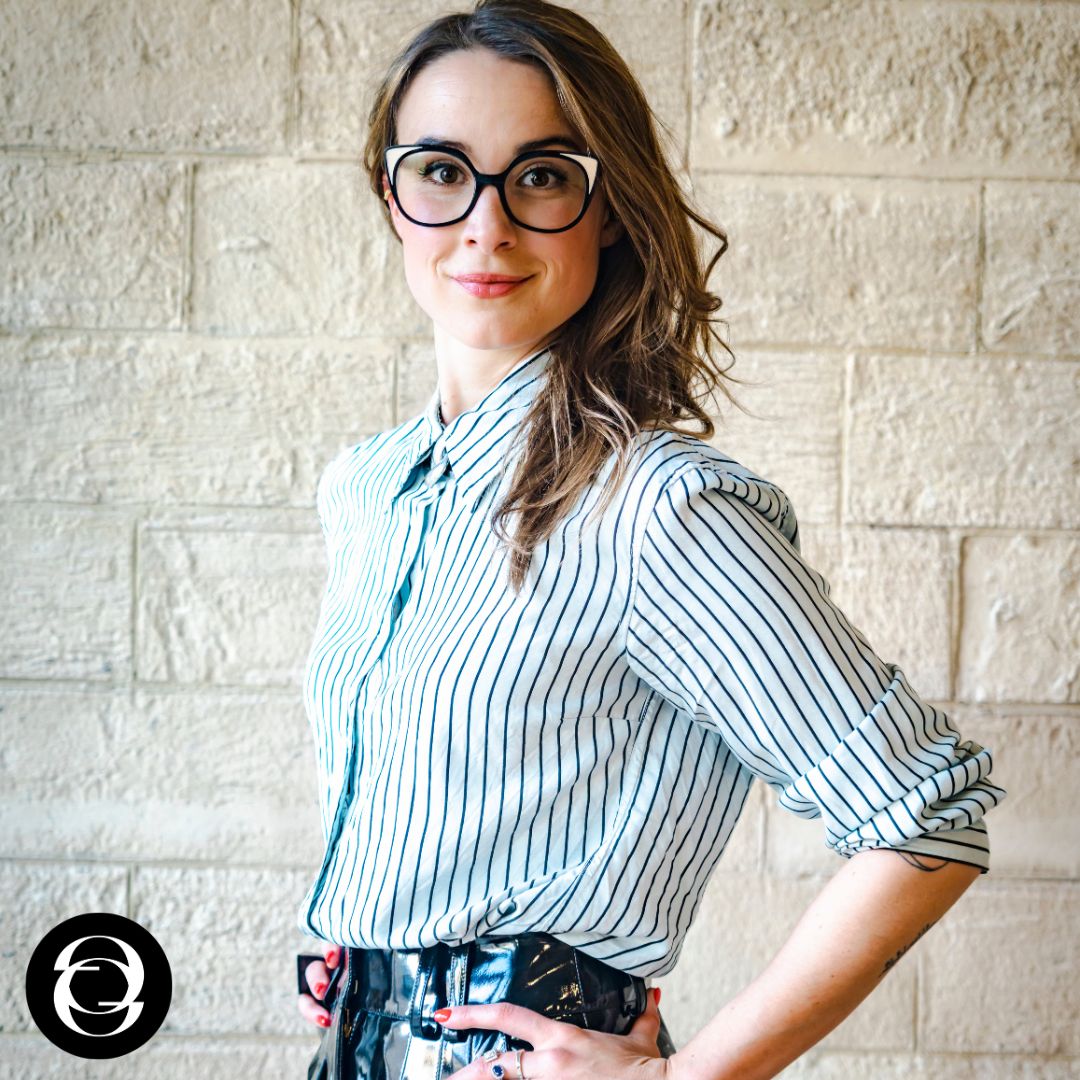
At La Caserne, a sustainable fashion incubator in Paris's 10th arrondissement, Jeanne Friot crafts impactful fashion.
Leaving no one indifferent, her eponymous brand has been playing with traditional fashion codes since 2020. Following her participation in the Paris Fashion Week Spring-Summer 2024, Jeanne has been living the life of a young designer at full speed. A graduate of the Duperré school and the Institut Français de la Mode, she gained a wealth of work experience with designers before taking the plunge and going solo. Having worked for A.P.C. and Balenciaga, Parisian-born Jeanne Friot has worked with the very best and is making a name for herself on the emerging French fashion scene. Last June, her show “Sirens” at the Palais de Tokyo was a must-see event, and the crowd in the fully packed room was there to prove it. Drawing inspiration from Hans Christian Andersen's 1837 fairy tale The Little Mermaid, her collection blends the brand’s disruptive DNA with the original storyline. A story of gender, identity and sexuality that Jeanne Friot portrays brilliantly while getting important messages across.
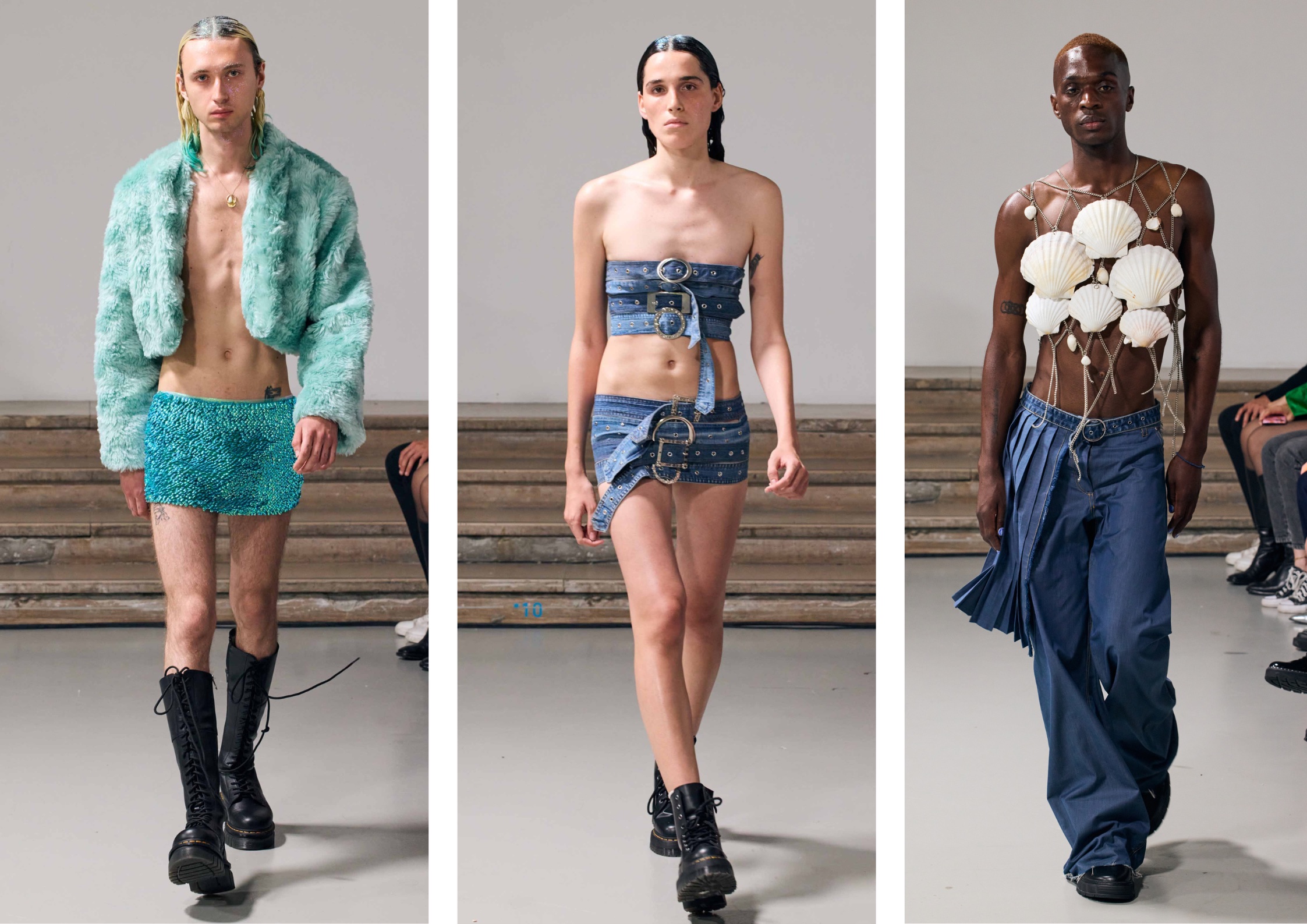
For you, Jeanne Friot is a way of expressing yourself politically. Is that what sets you apart from other designers?
Talking about our community, talking about the role of women in fashion and talking about a lot of things about gender, I think we're maybe the only ones today who really have a voice.

Is it difficult, in our society, to break away from the codes of masculine and feminine in fashion?
That's why I created this brand. There's a difference between what I perceive and what society is like. For me, we’re in an ideal world in which we're no longer in a binary situation. But it's not the reality of society today, it is only the case for a fragment of the population. There are still things to deconstruct and work to do.
Each collection carries a message. How do your ideas and inspirations influence your creative process?
The themes of each collection inspire us to create the themes that will appear on the shows. Renewing themes changes things, but the creative process remains the same.
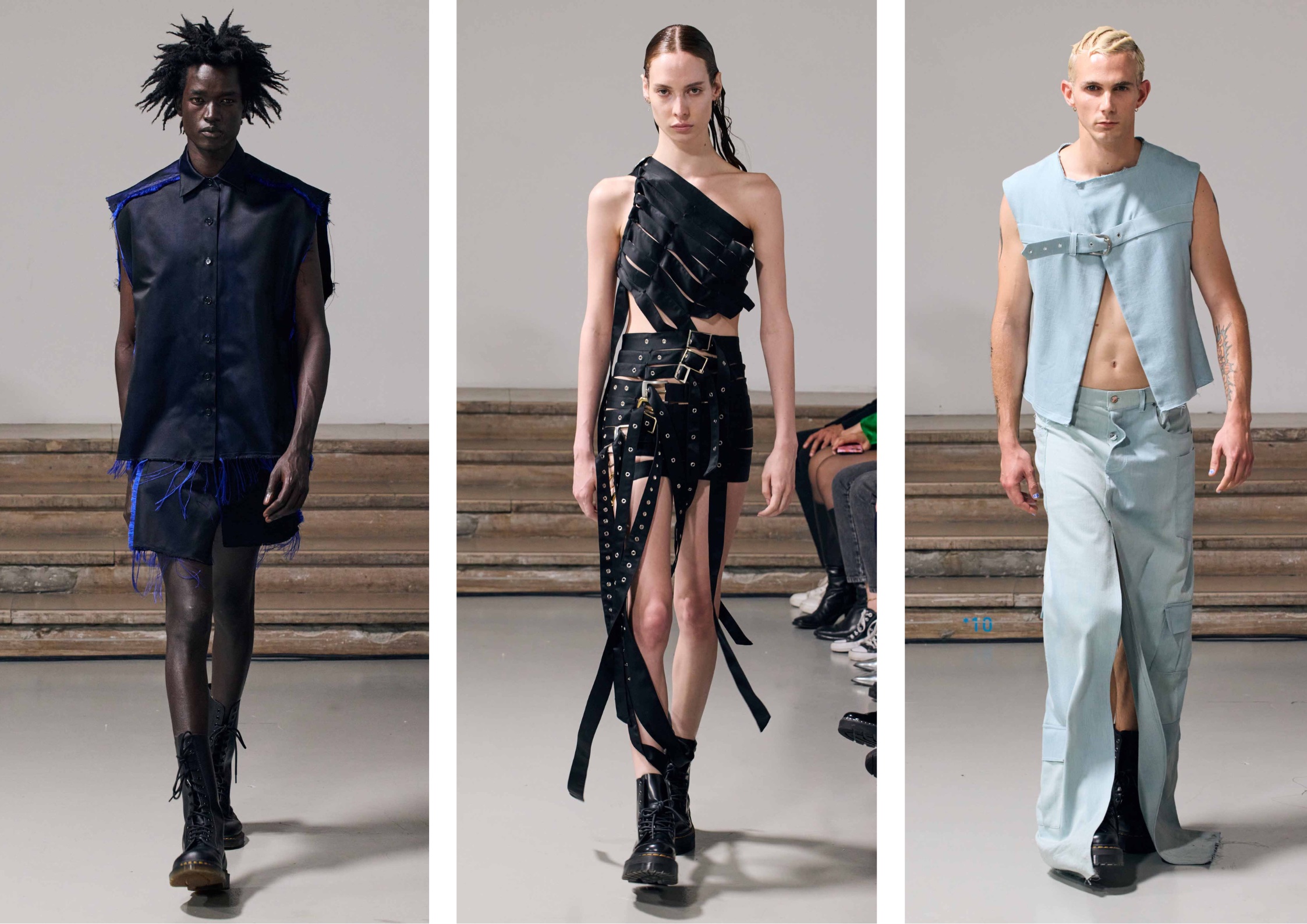
You use upcycled fabrics for your collections. Does the choice of fabrics inspire your pieces, or do you choose fabrics according to your ideas?
It's a dialogue between the two. There's no one way of working; with us it's quite organic. Sometimes we have a piece structured around the body and we'll choose the fabric because we want something that's luminous or voluptuous, lighter or denser. And sometimes, when I go to Nona Source (supplier of deadstock fabrics from partner luxury houses, also located at La Caserne) with whom I work, I'll see fabrics and that will give me the idea of working around the fabric to create a piece. There's nothing definite or preconceived about it.
Can we hope that the accessibility of deadstock materials will greatly encourage slow fashion?
You have tools like Nona that are accessible to everyone and are very well made. Then there's the question of how you produce and on what scale. It's quite easy to work with at first when you're a very young designer and you're not producing many pieces. As the company grows, there's the question of not being able to deliver as many pieces as you want, of having to choose between stores because you can't deliver to all the stores that want that creation. I think the real question is how we grow as a structure when you use deadstock materials. It's accessible, but the work around it is going to be more complex.
You were included in Vogue Business' "100 Innovators" this year. What does it mean to you to have your work honored by such institutions?
It's important because we need institutions to help us and acknowledge us. It gives us good news and moments of joy too. As a young designer, you're always quite precarious, you have ups and downs, very happy and lively moments and others that are very hard to deal with emotionally. For me, fashion is a battle, so it's obviously good to see that others understand you.
You were part of the Sphère program of the Fédération de Haute Couture and had your work exhibited during Paris Fashion Week. What are your goals for 2024?
It's to present shows in January and in June. I'm especially looking forward to presenting the next collection, which has a theme that's important to me. Then, my goals are to develop the company and pay my teams. We're still very small at the moment, we look big because we're lucky enough to have exponential media coverage that opened doors for us, but in fact we're really very small. It's getting harder and harder to keep up, and what I really want is to be able to expand the company and hire more employees, and to be able to keep growing too.
You worked with Clémence Cahu on the "Sirens" collection, and now you're collaborating again for Première Classe. What prompted these collaborations?
Clémence and I worked together for nearly 8 years, I was her assistant. We became friends, of course. I was looking for a brand to do a bag collaboration with and we'd been talking about doing something together for a long time. I think the timing was right and it just happened. We know each other, so it was easy. It's about making a family within an entity like the brand. All the people who work with me are close friends or people who join the family for one reason or another. When you're a small company, it's also easier to work with people that you get and who you understand straight away. We don't need to talk for hours on end. We send each other three things and we know exactly which idea we're going to like, and we know we're going to agree on the processes.
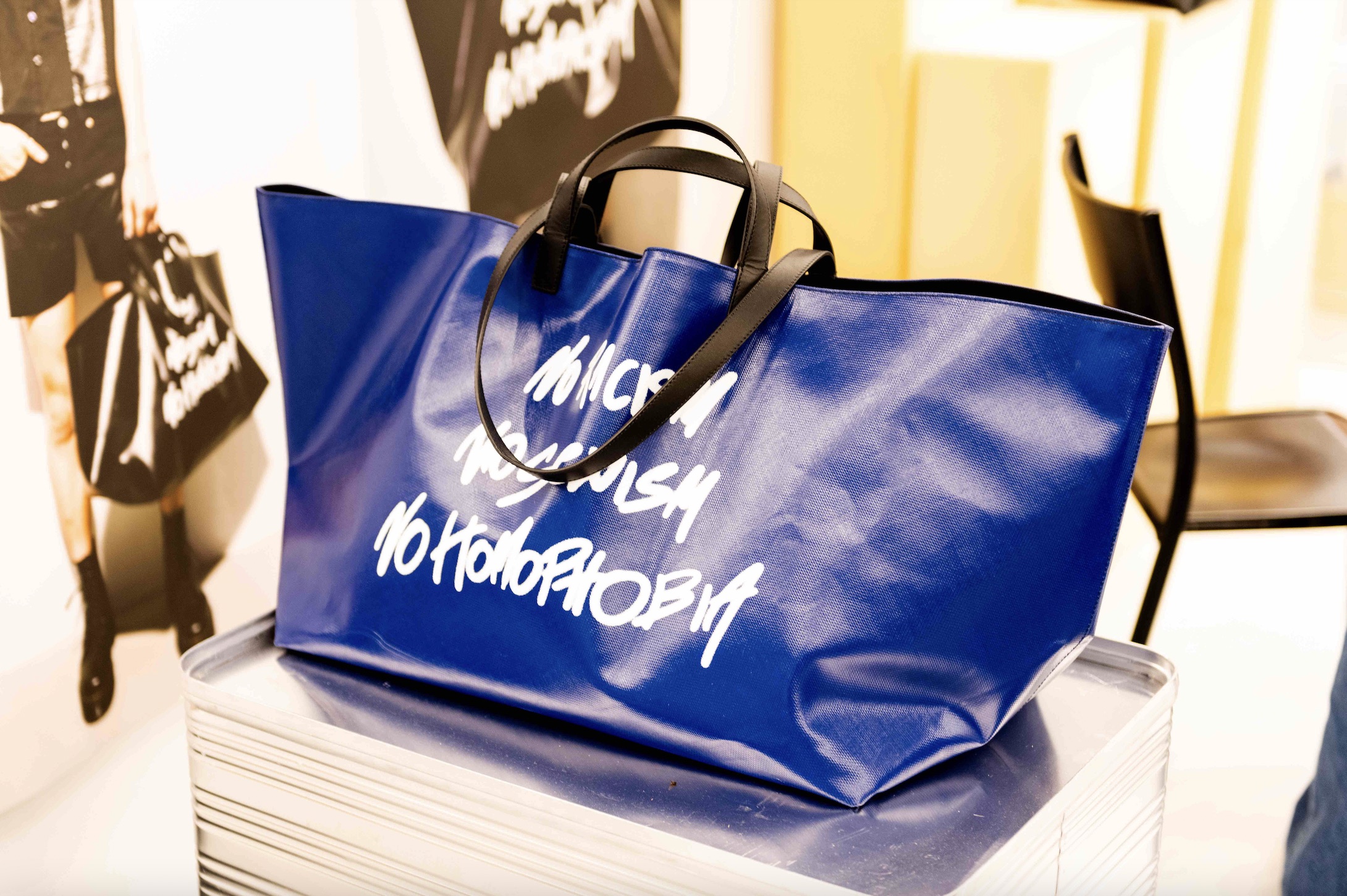
On Premiere Classe, there are around fifty brands that are less than three years old. You created Jeanne Friot in 2020. Do you have any advice for someone wanting to create a fashion brand these days?
I don't think so, I don't have any advice, but I think it's important to take the plunge and to have a strong backbone. You have to be able to foresee that, for three years, maybe even five, it's going to be difficult. You have to be able to see it in the long term. I think you have to go step by step and not get discouraged, and set yourself little goals to achieve as you go along.

Since its creation in 2017, The Good Goods has established itself as a unique media and creative studio, dedicated to transforming the fashion, textile, and luxury industries.
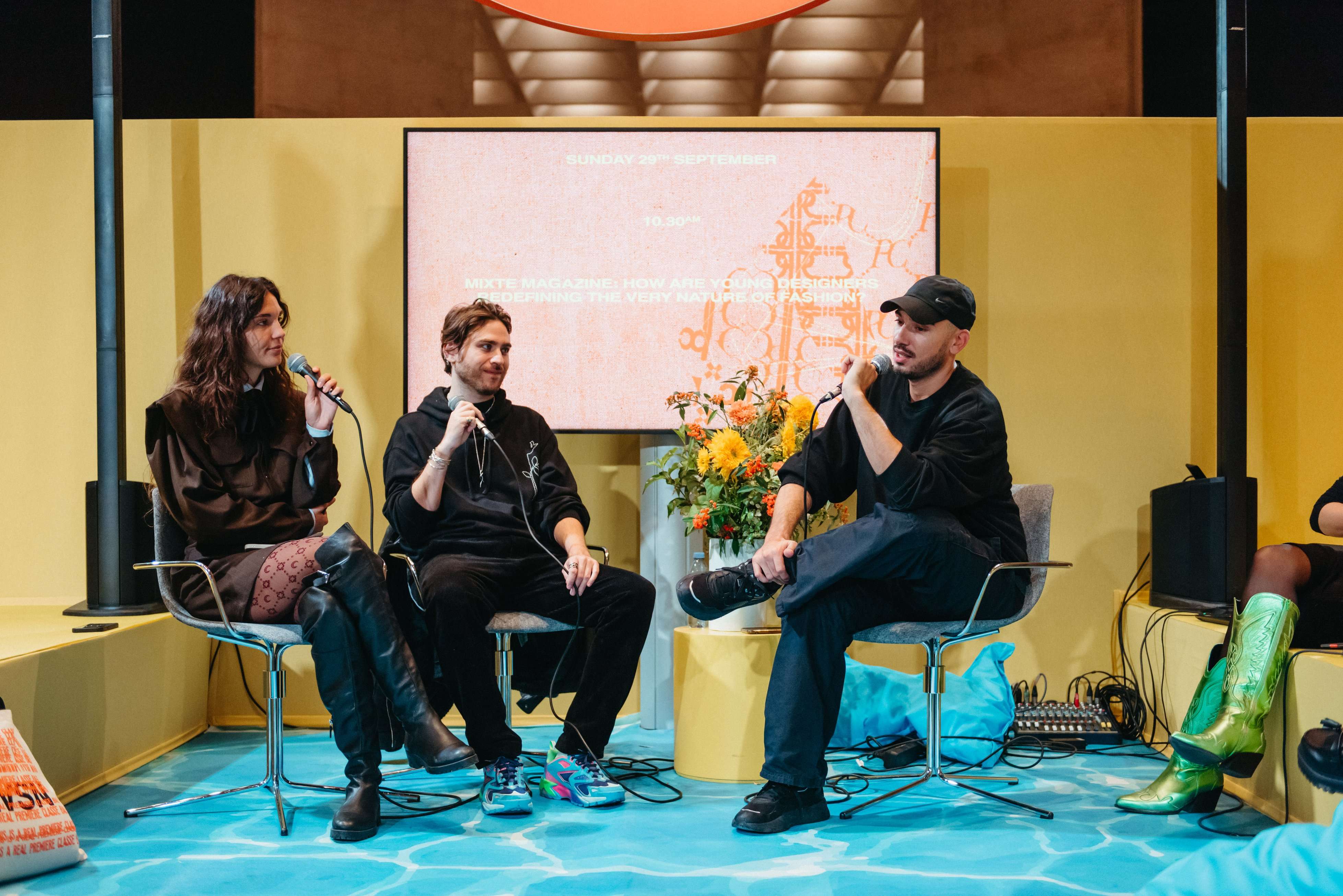
In the vibrant setting of the Beyond the Noise space at Premiere Classe, a talk hosted by Mixte Magazine captivated the audience with an audacious theme: how the new generation of designers is reshaping fashion by reconnecting with nature and craftsmanship.
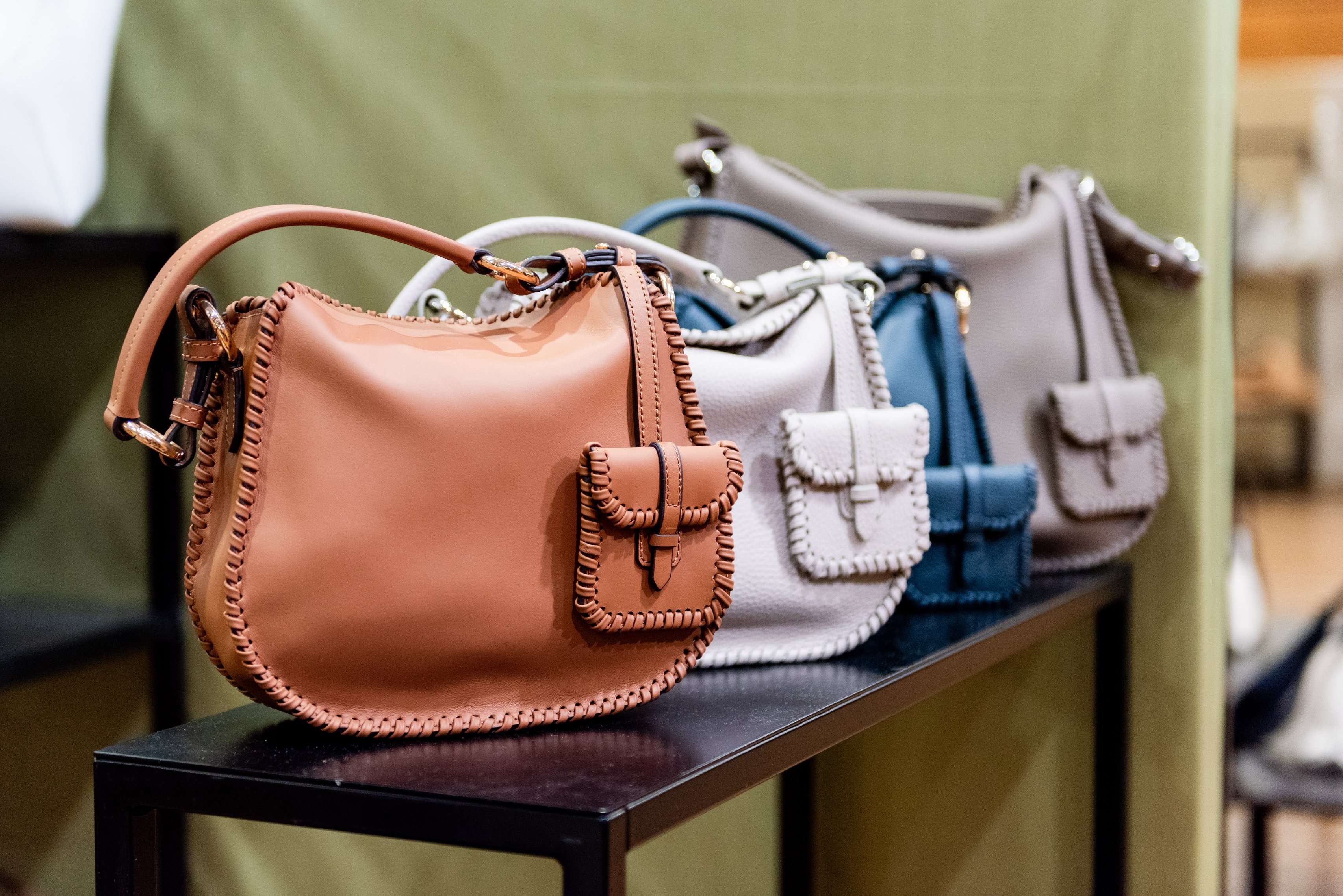
Founded by sisters Fazla and Eda Topbaş, Vuqu is a Turkish leather goods house based in Istanbul that skillfully combines elegance and functionality.
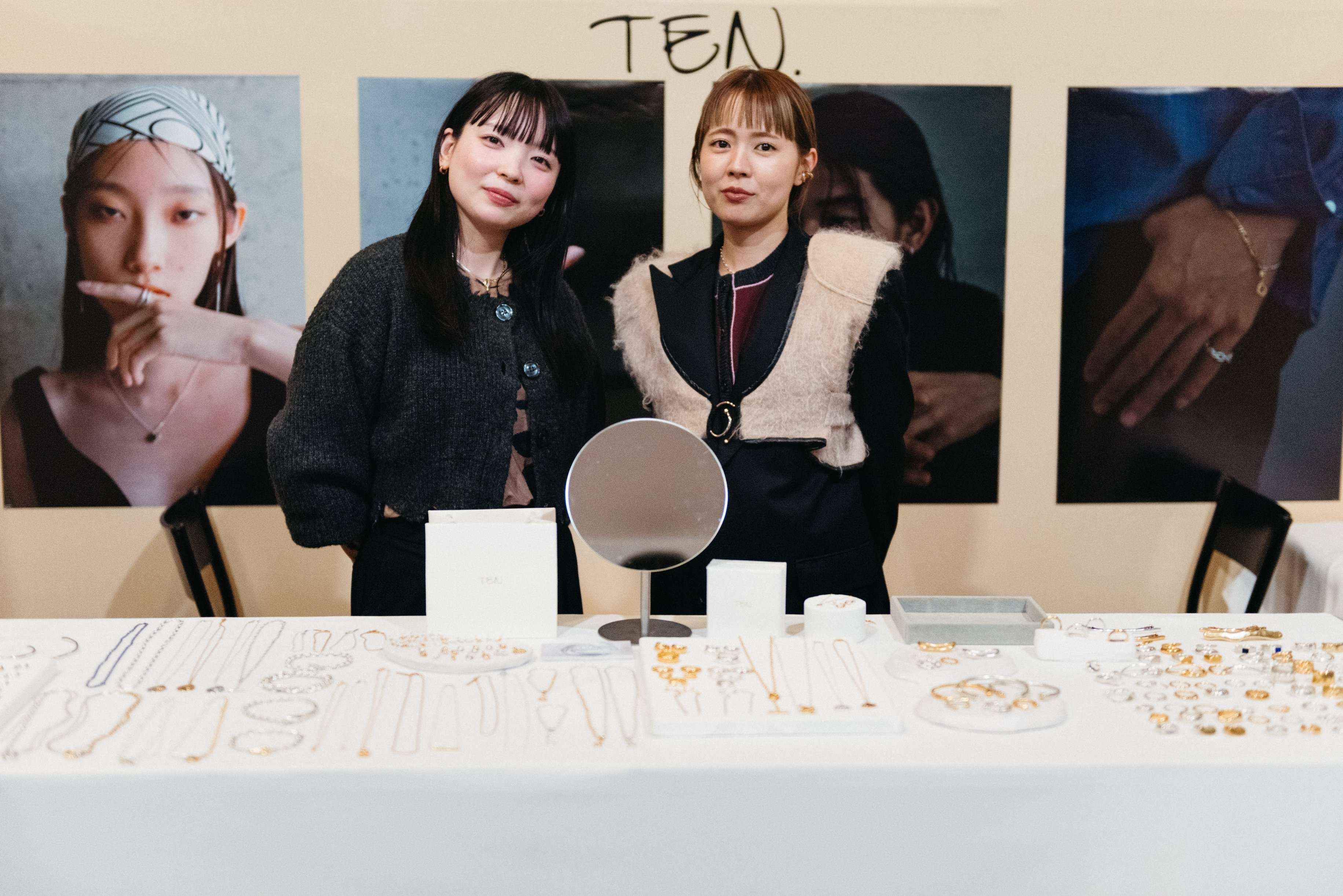
Founded by Japanese designer Akane Horikami, Ten. has become a go-to brand for those seeking a blend of nature, minimalism, and contemporary elegance. At this fifth participation in Premiere Classe, Ten. continued to captivate with a collection exploring fluid lines while introducing more geometric elements.
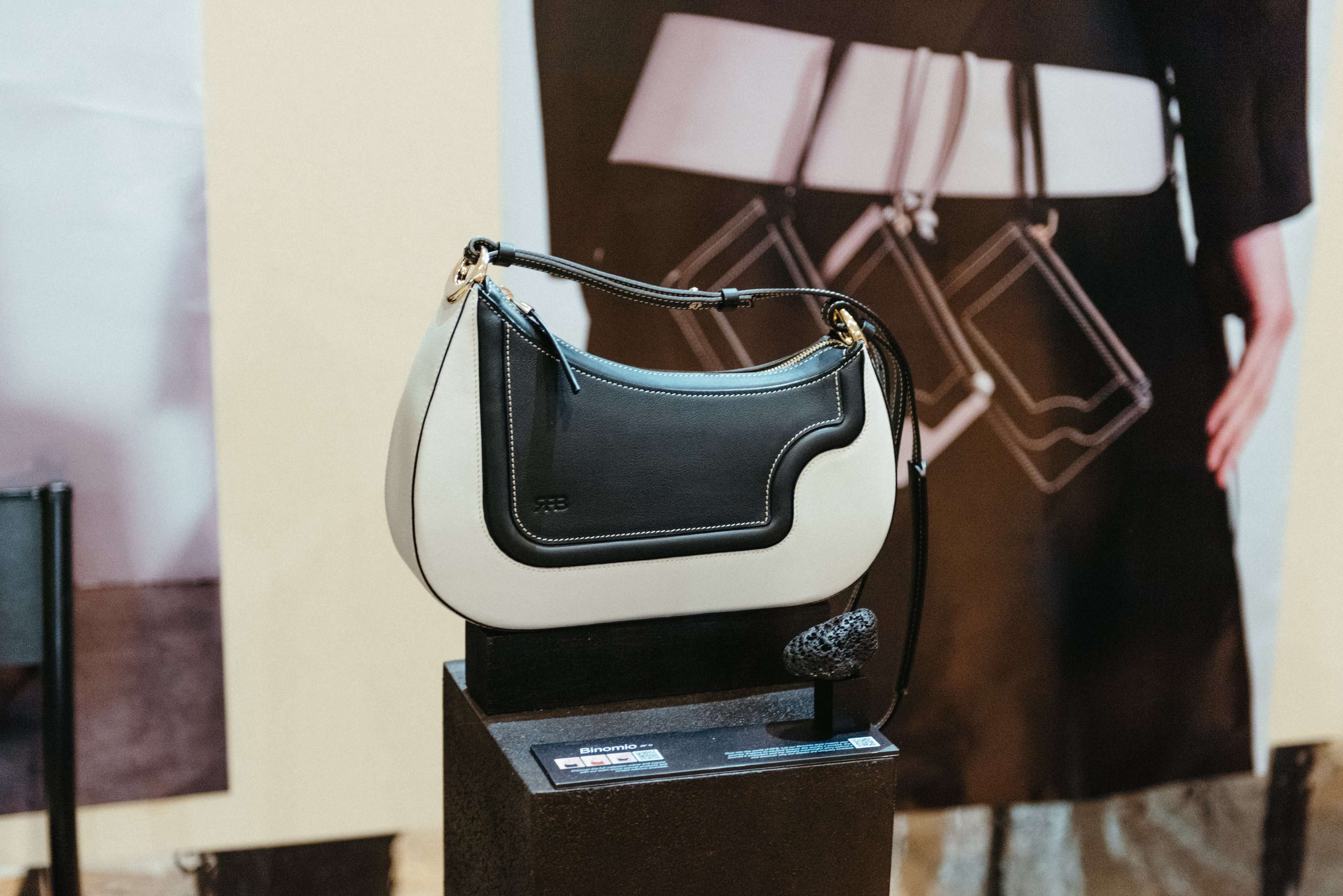
At her debut showing at Premiere Classe, Raquel Figueroa Borque, founder of the leather goods brand RFB, shared her journey, inspirations, and vision for a sustainable, timeless, and meaningful approach to fashion.
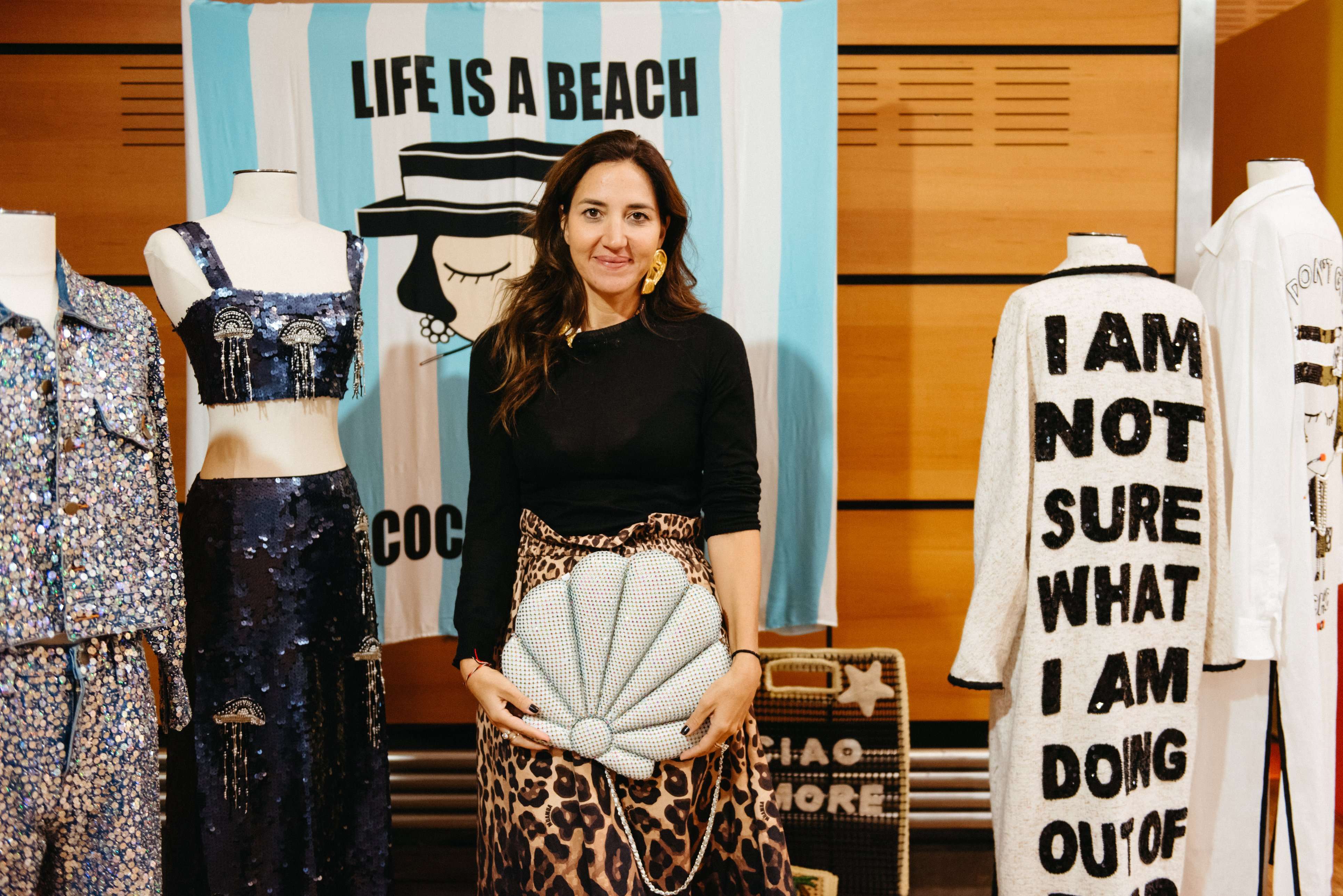
Founded by Ludovica Virga, House of Mua Mua stands out with its playful, humour-filled approach to fashion. At this September’s edition of Premiere Classe, Ludovica presented her new collection, Happiness is a Summer in Italy, inspired by her summer holiday memories. This collection brilliantly reflects the brand’s DNA, combining light-heartedness, humour, and meticulous craftsmanship.
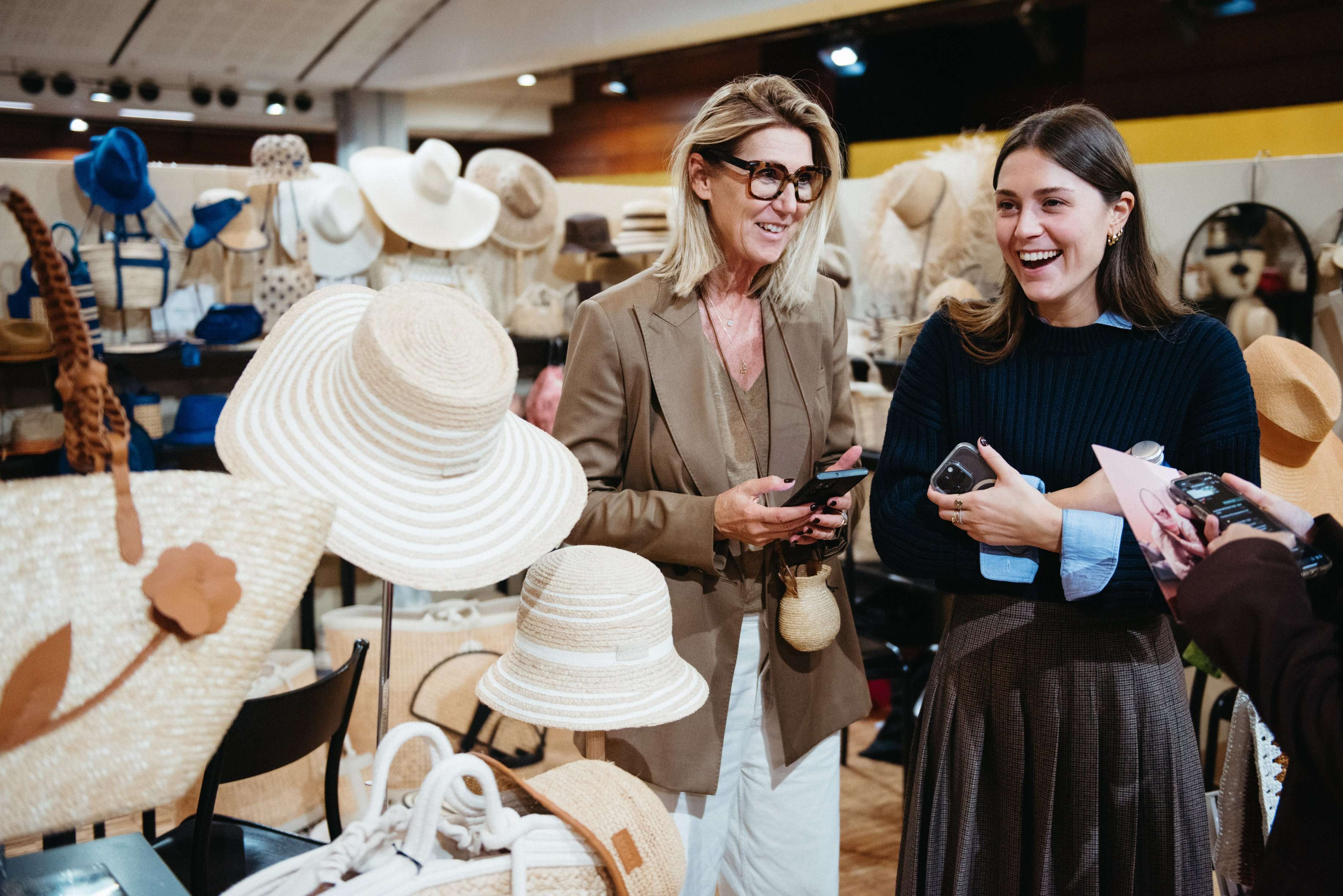
The hat and accessories house Catarzi 1910, led by the Nistri couple as co-directors and designers, represents far more than a family business. It embodies a century of artisanal traditions, creativity, and innovation carried across generations.

Amambaih, founded by Mariela Schwartz Montielle, represents a unique fusion of art, culture, and humanity. Originally from Paraguay, Mariella draws on her multicultural roots to realise a creative vision that goes far beyond simply crafting artisanal shoes and bags.

As the western aesthetic captivates designers, brands, and consumers, one French brand is riding the wave: Soco. Created in 1932, this “sleeping beauty” brand was revived three years ago, following a brief closure, thanks to the efforts of two passionate sisters-in-law who share the same first name. So the story of Soco is continuing under the stewardship of the “Maries Mignon.”
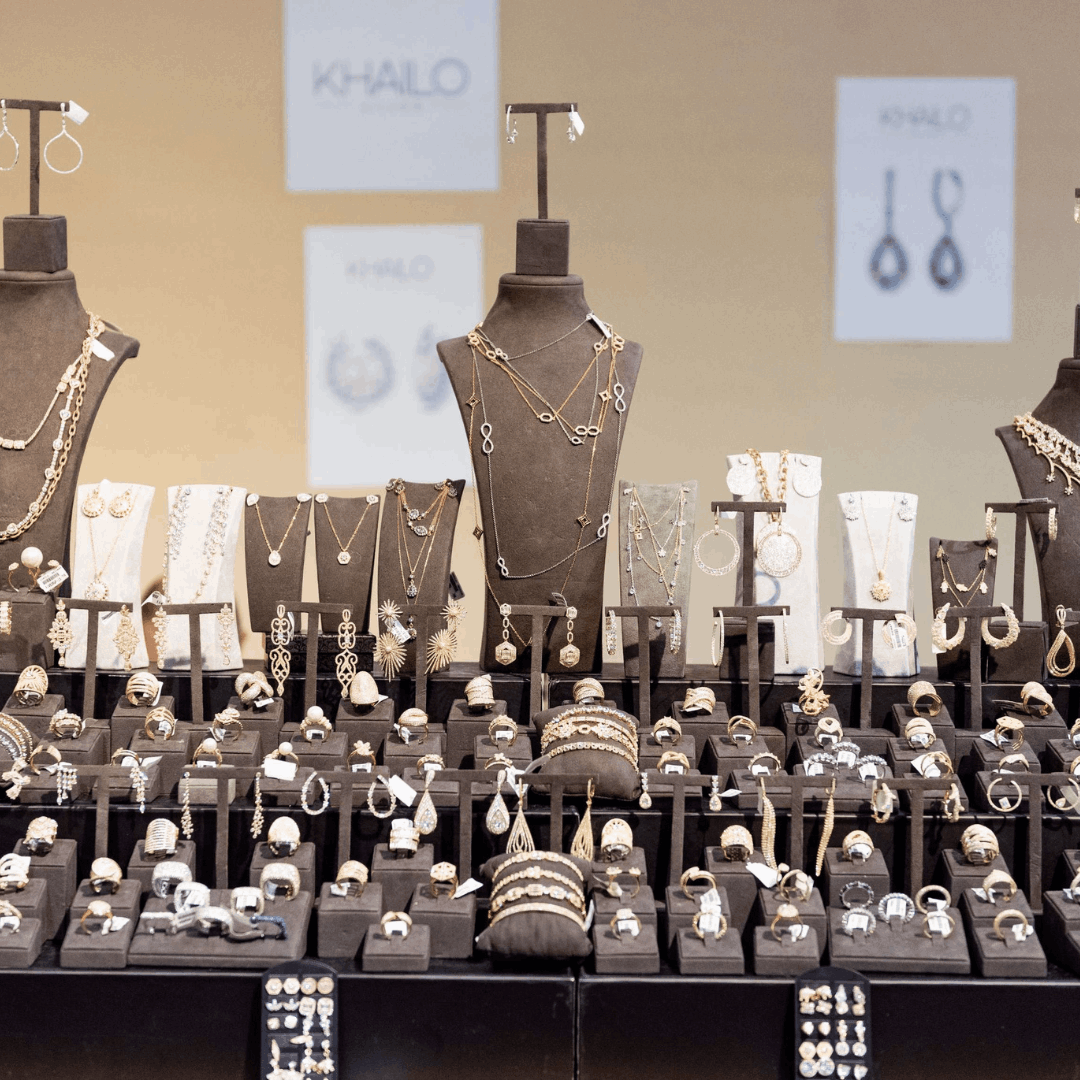
The Turkish brand Khailo Silver has been offering modern and elegant jewellery for over ten years. With meticulous finishes inspired by fine and high jewellery, their premium designs, often adorned with Swarovski crystals or other precious and semi-precious stones, have made them internationally renowned.

Founded in 2015 by the Italian duo Michelangelo Brancato and Francilla Ronchi, Coreterno is a niche perfume brand whose name means “eternal heart” in Italian, and the brand creates unique candles imbued with esotericism. Their style is a blend of rock, almost punk aesthetics, and a mystical aura, forming an invisible bridge between the ancient and the modern.
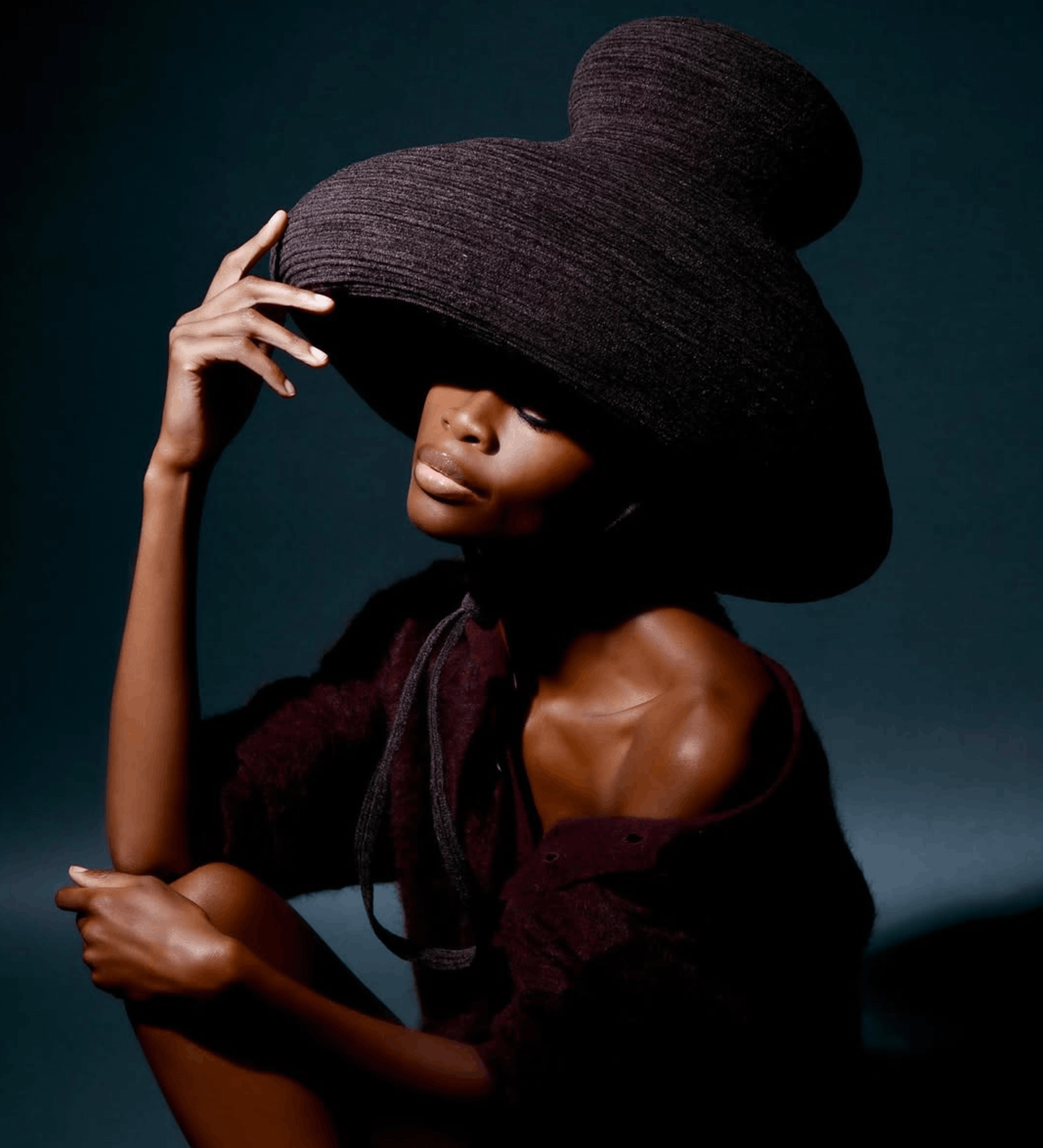
Based in New York City, the hat brand Esenshel, founded and led by Rodney Patterson, embodies a unique approach to hat creation.
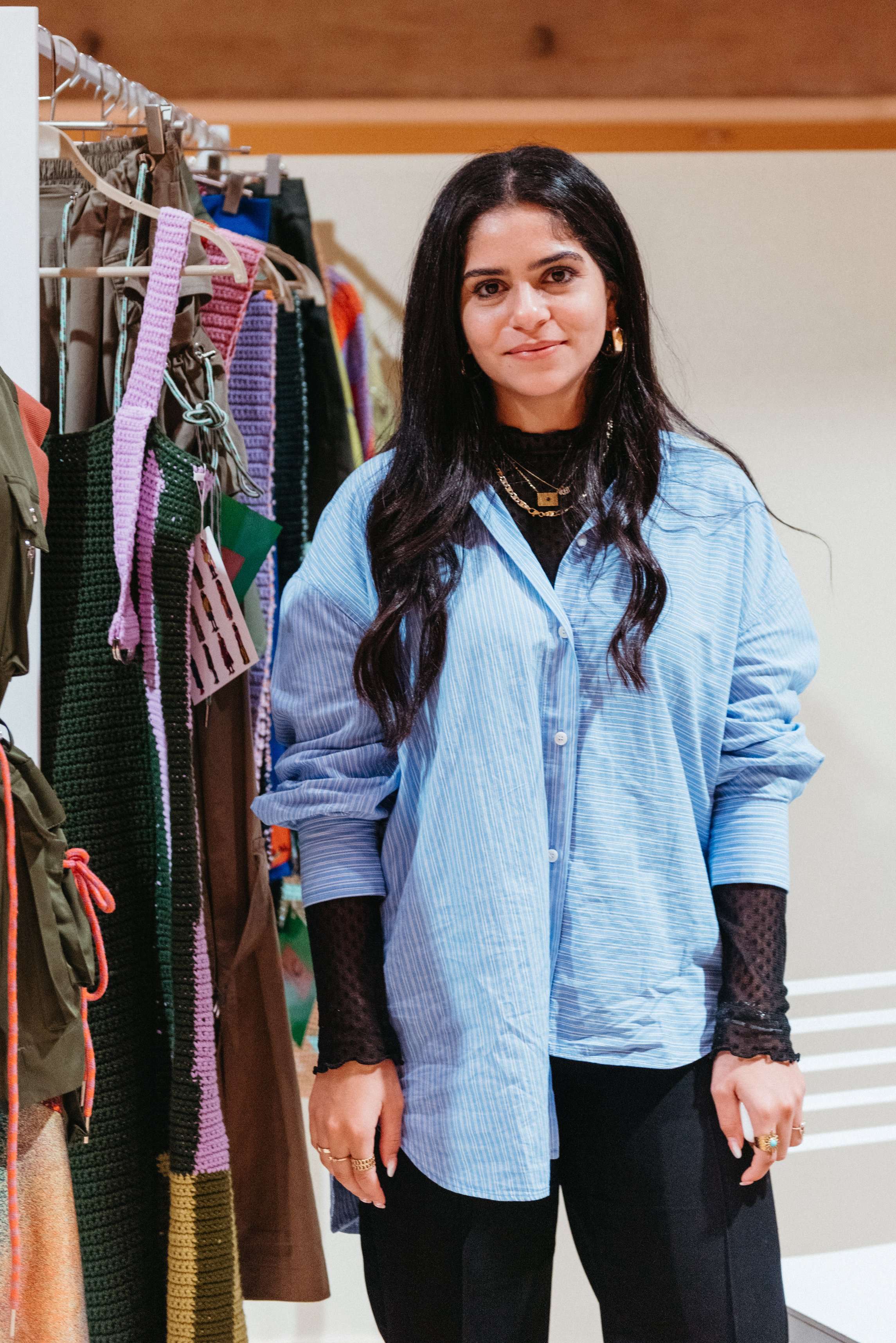
Presenting for the first time at Premiere Classe, Amina Galal represents a new generation of Arab designers who blend tradition and modernity with a personal, emotional touch.

For Thaïs Roblowski, fashion is a true calling, and after studying design and pattern-making at the Chambre Syndicale and interning at Thom Browne in New York and Mugler, she became a stylist at Cacharel and Alzaro.
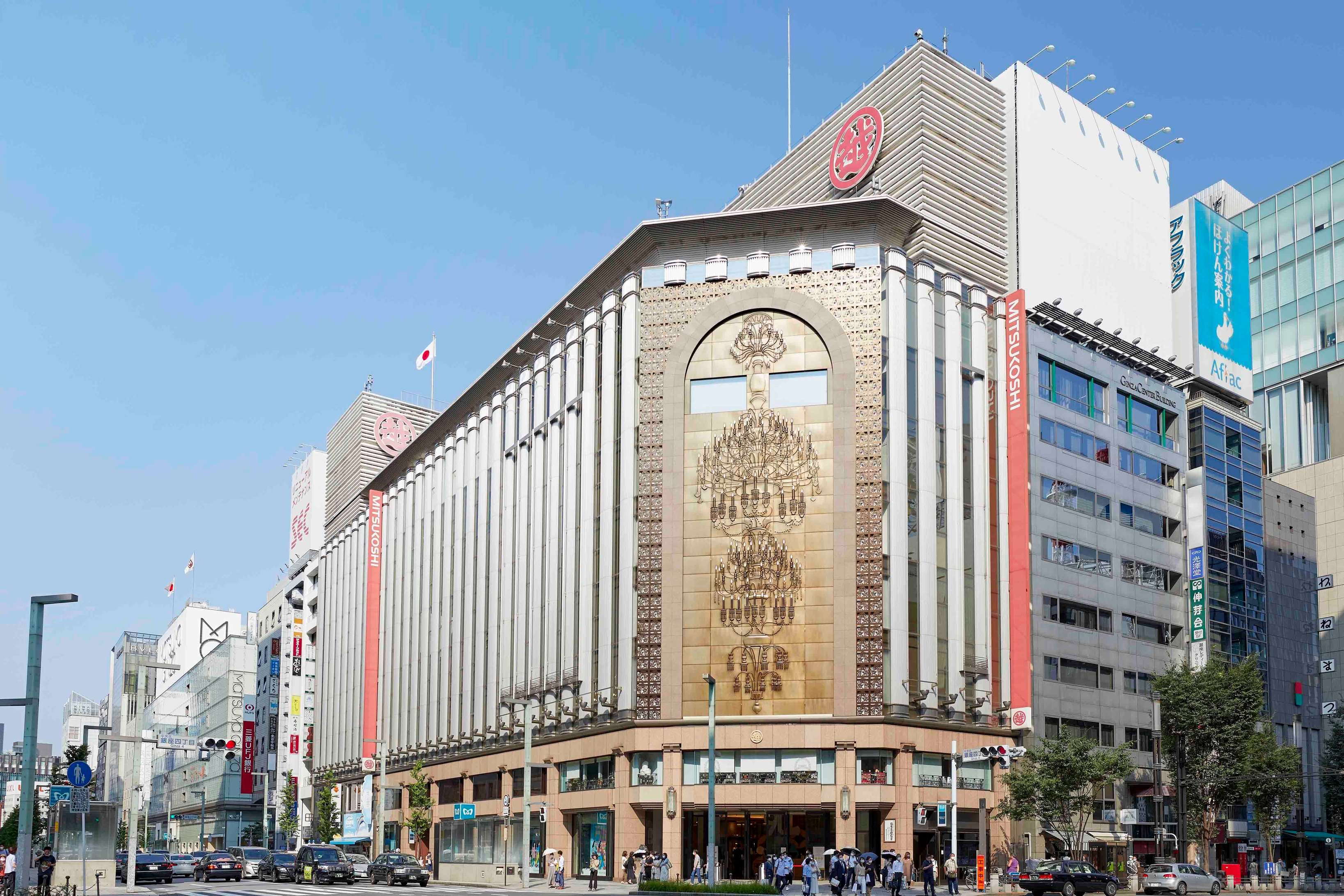
The Parisian eye of Japanese department store Isetan Mitsukoshi tells us about her latest Who’s Next fashion crushes.
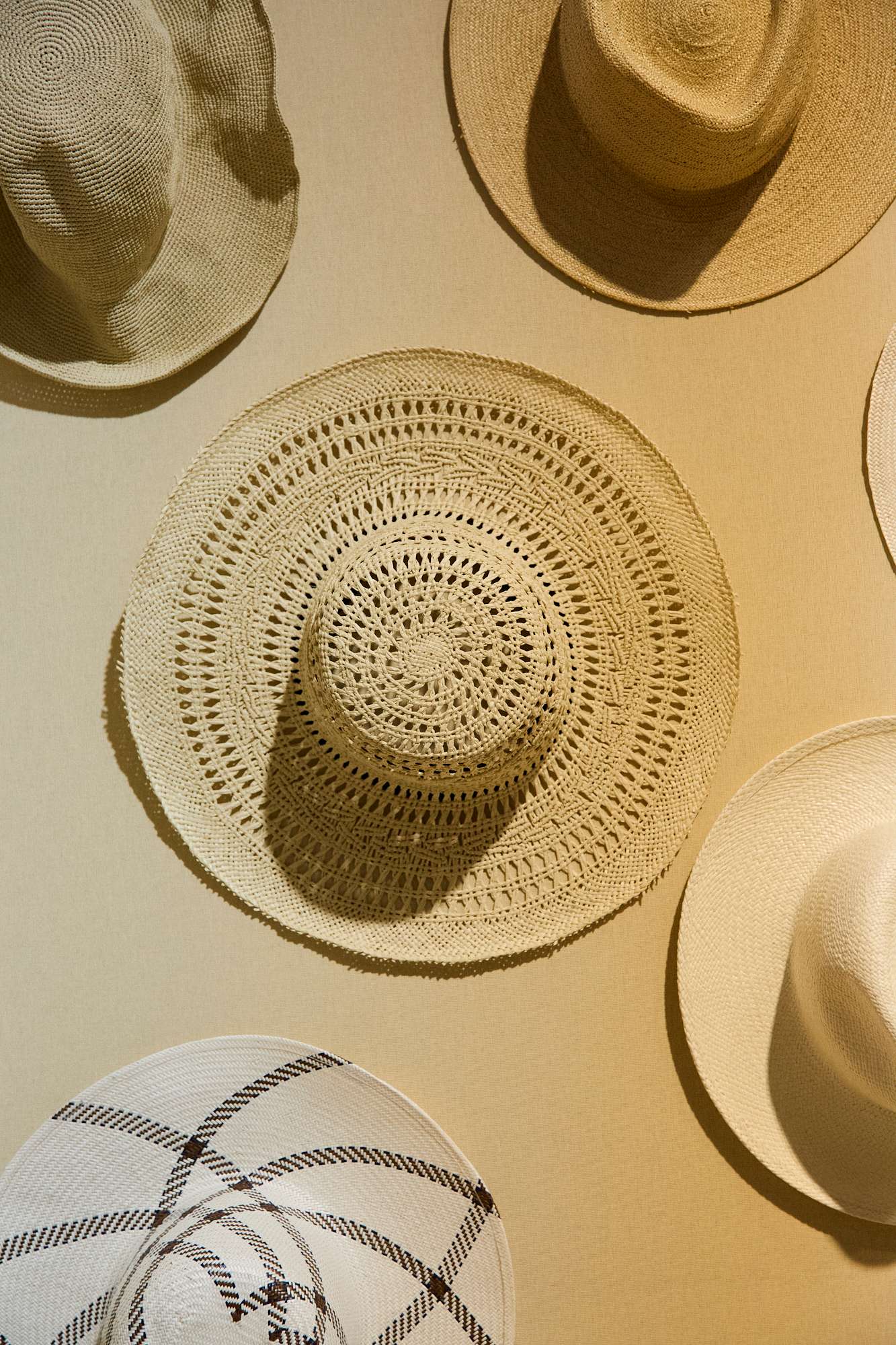
Reinhard Plank (Founder and milliner), originally from Vipiteno (Italy) near the Austrian border, first studied design in Vienna before turning to millinery. "I started with hats in Vienna, and my first classic model was a great success," he says. Drawn to Florence's rich hat-making heritage, Reinhard chose this city to perfect his craft.

At the latest edition of “Who’s Next,” we spoke with Camille Pouvreau and Lucas Bouteille, watch and jewellery buyers for Galeries Lafayette, about the burgeoning men’s jewellery market and the long-lasting nature of trends in the watch sector.
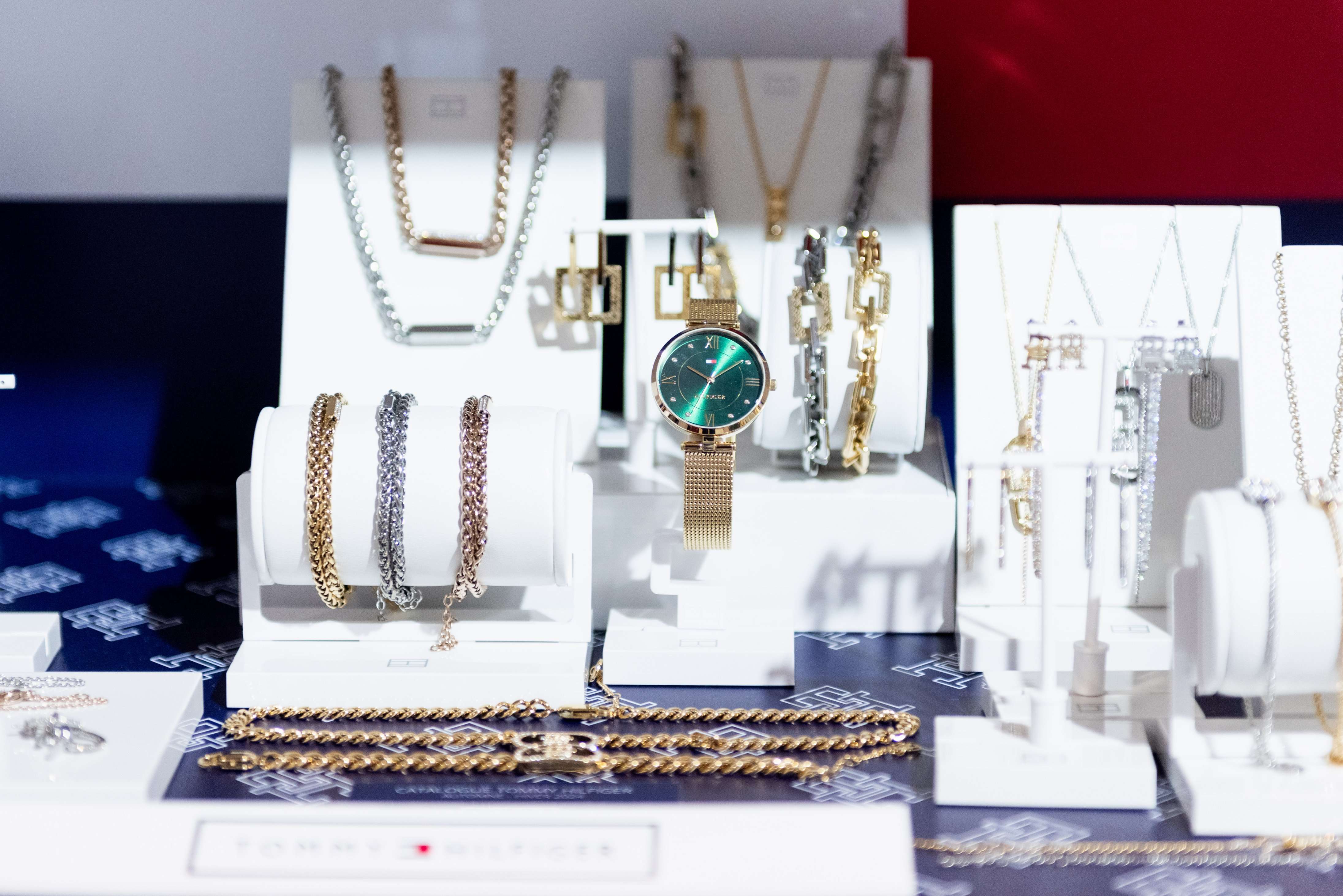
A key player in the watchmaking industry since the 1950s, the American Movado Group initially established itself through the distribution of traditional Swiss brands. Over time, it expanded globally, broadening its portfolio to include contemporary designs and jewellery.
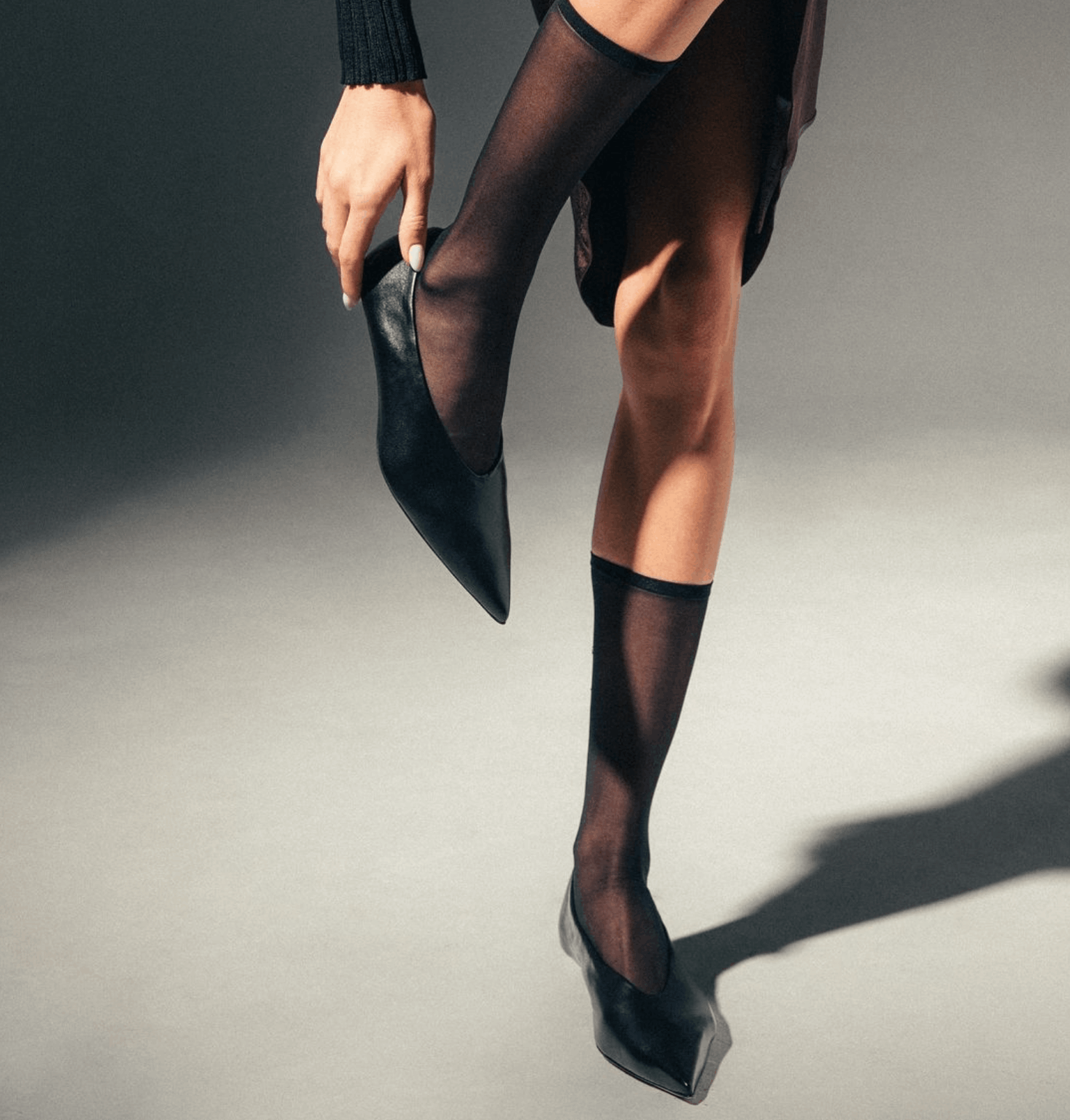
Founded in 1954 by the current owner’s parents, Antonio, the Italian shoe brand Guglielmo Rotta is the perfect example of a family craftsmanship that has evolved while remaining true to its roots. At this edition, the brand presented a collection that perfectly illustrates its commitment to quality, timelessness, and Italian craftsmanship.
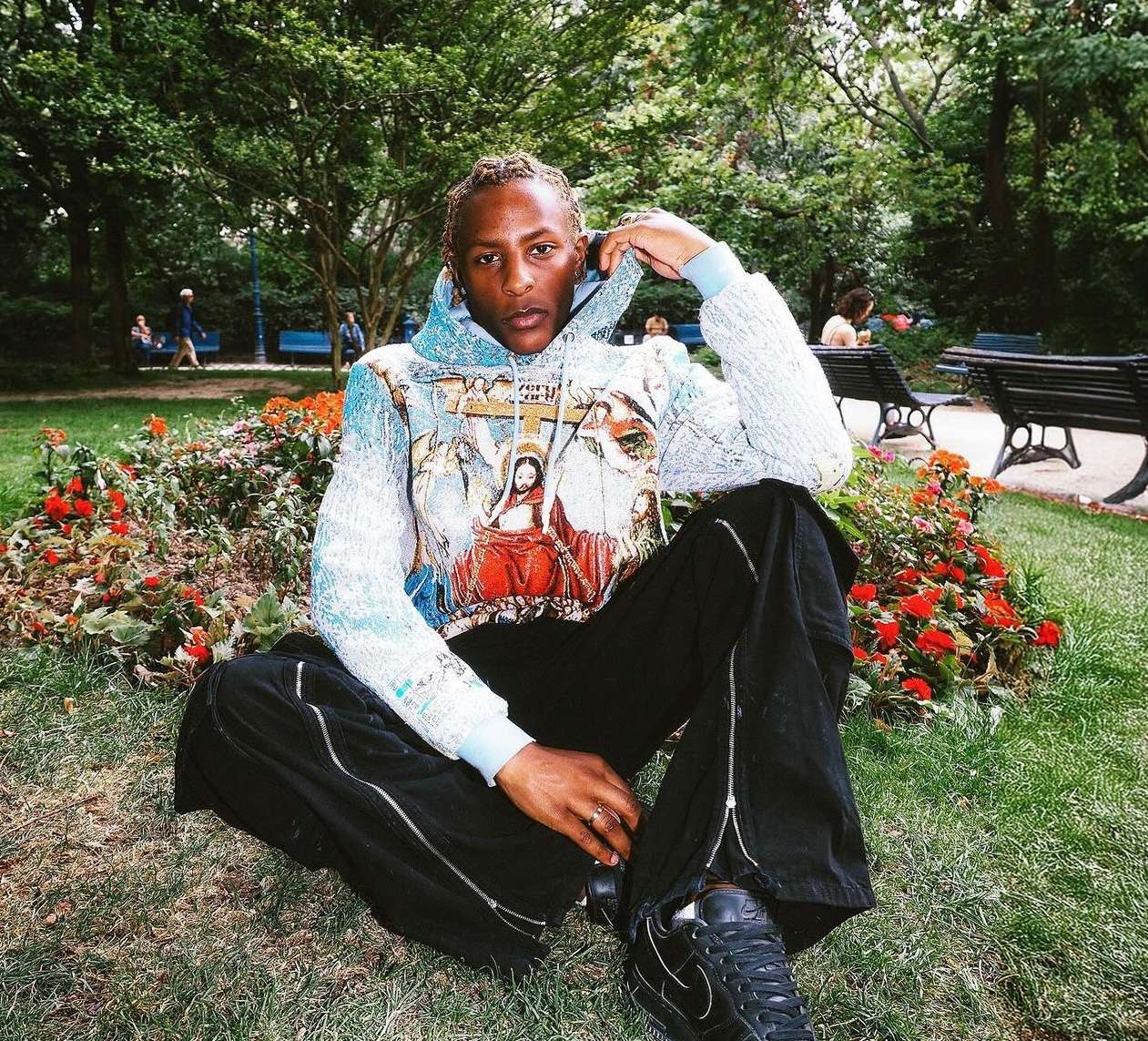
“Streetwear but make it Couture!” Very Rare, a lifestyle and ready-to-wear brand under the direction of Raf Reyes, embodies an avant-garde vision of streetwear through what the designer defines as ‘street couture’. Born during the 2020 health crisis, this family-run brand, founded with his older brother, stands out for its fluid silhouettes, intricate details such as embroidery, flocking, and graphic prints, and strong influences from 90s subcultures.
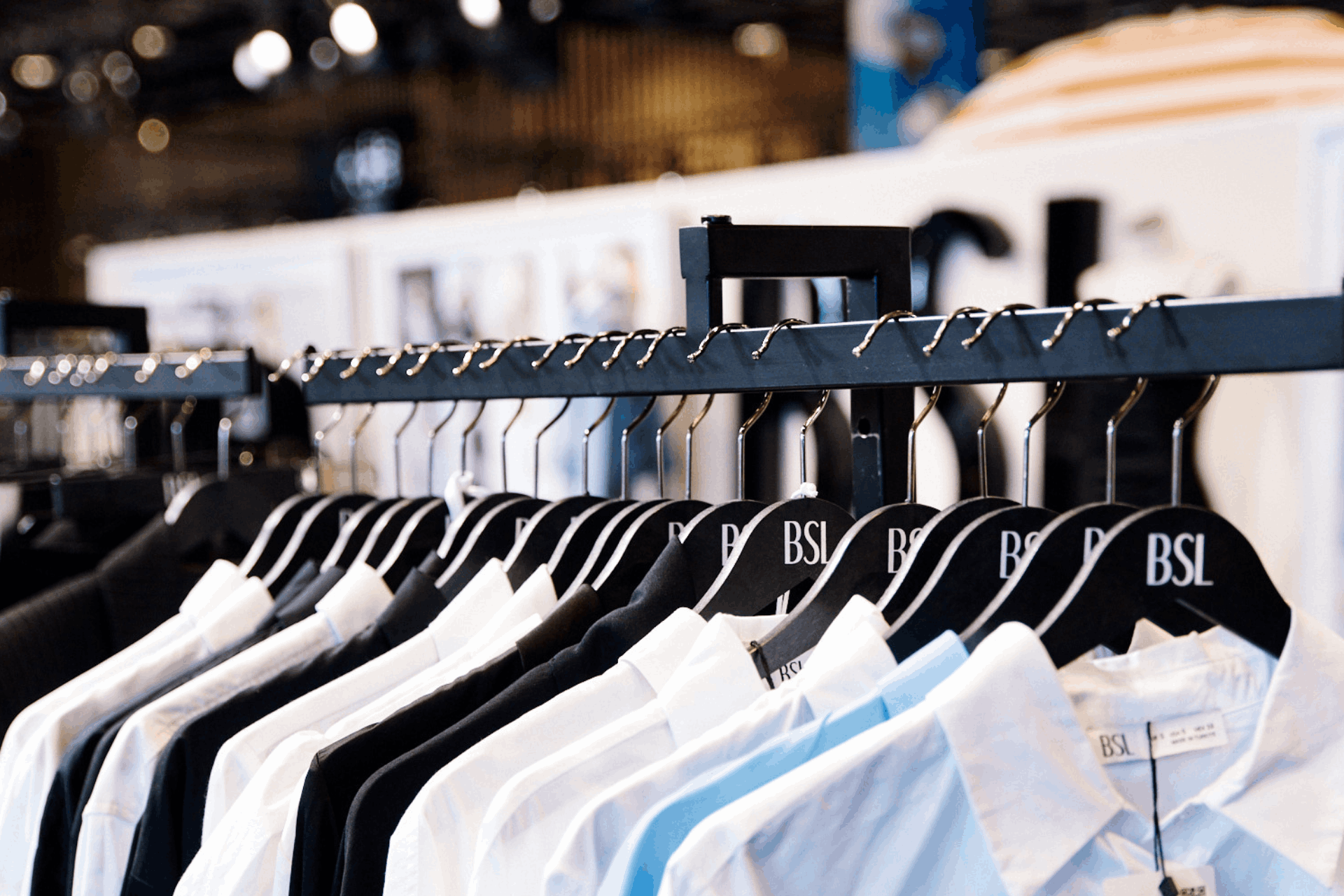
For over 15 years, BSL, a Turkish ready-to-wear brand, has made a name for itself in the fashion market in Turkey, with stores in the country’s major cities such as Istanbul, Izmir, Ankara, and Antalya. Initially focused on its own retail outlets, BSL adopted a new strategy last year: expanding its distribution network across Europe.
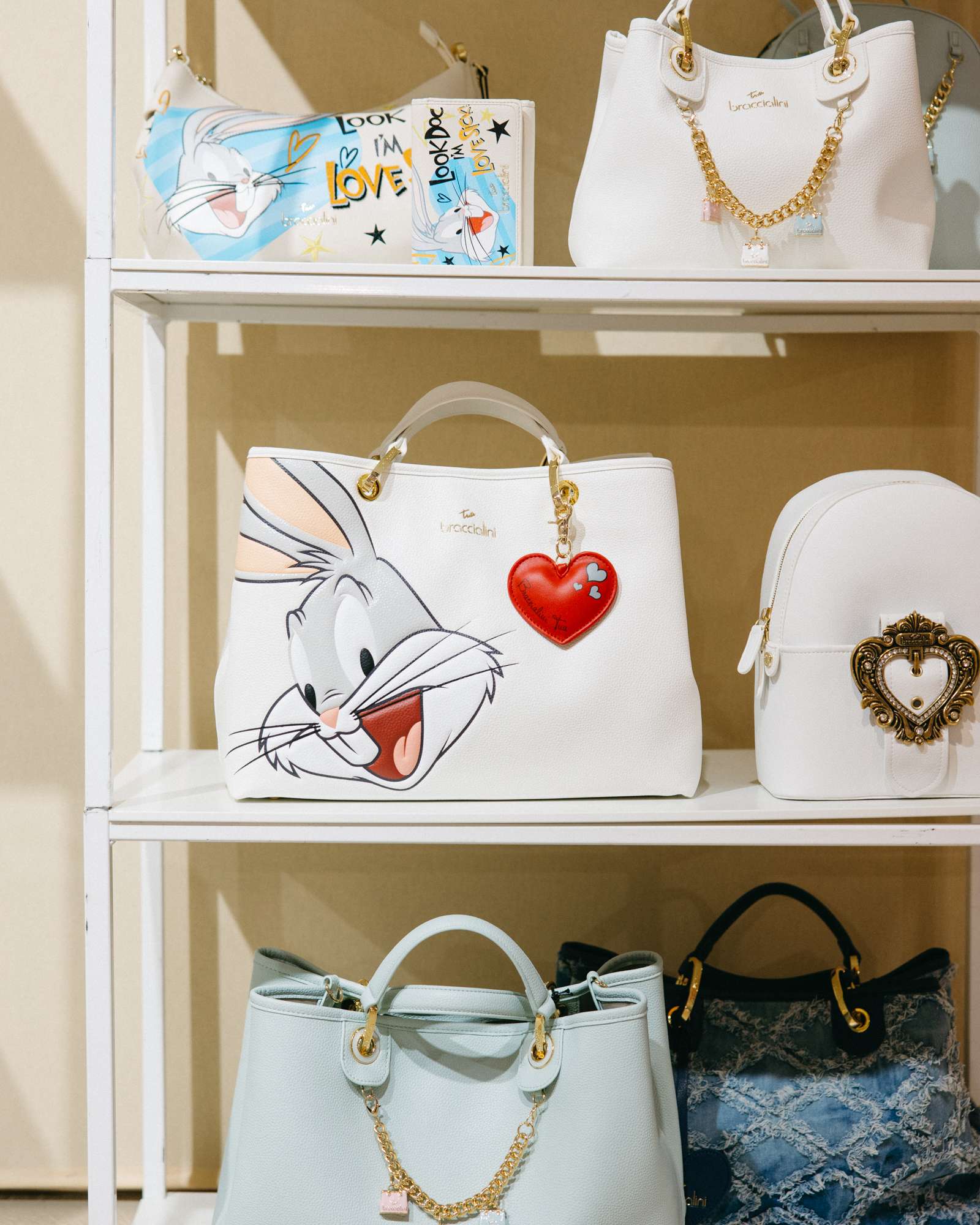
Reinterpreting its heritage Braccialini, the iconic Italian brand from Florence, is celebrating its 70th anniversary this year. "We were born in Florence, and the natural and architectural beauty of Tuscany greatly inspires our creations," shares Daniela, the brand's sales agent.
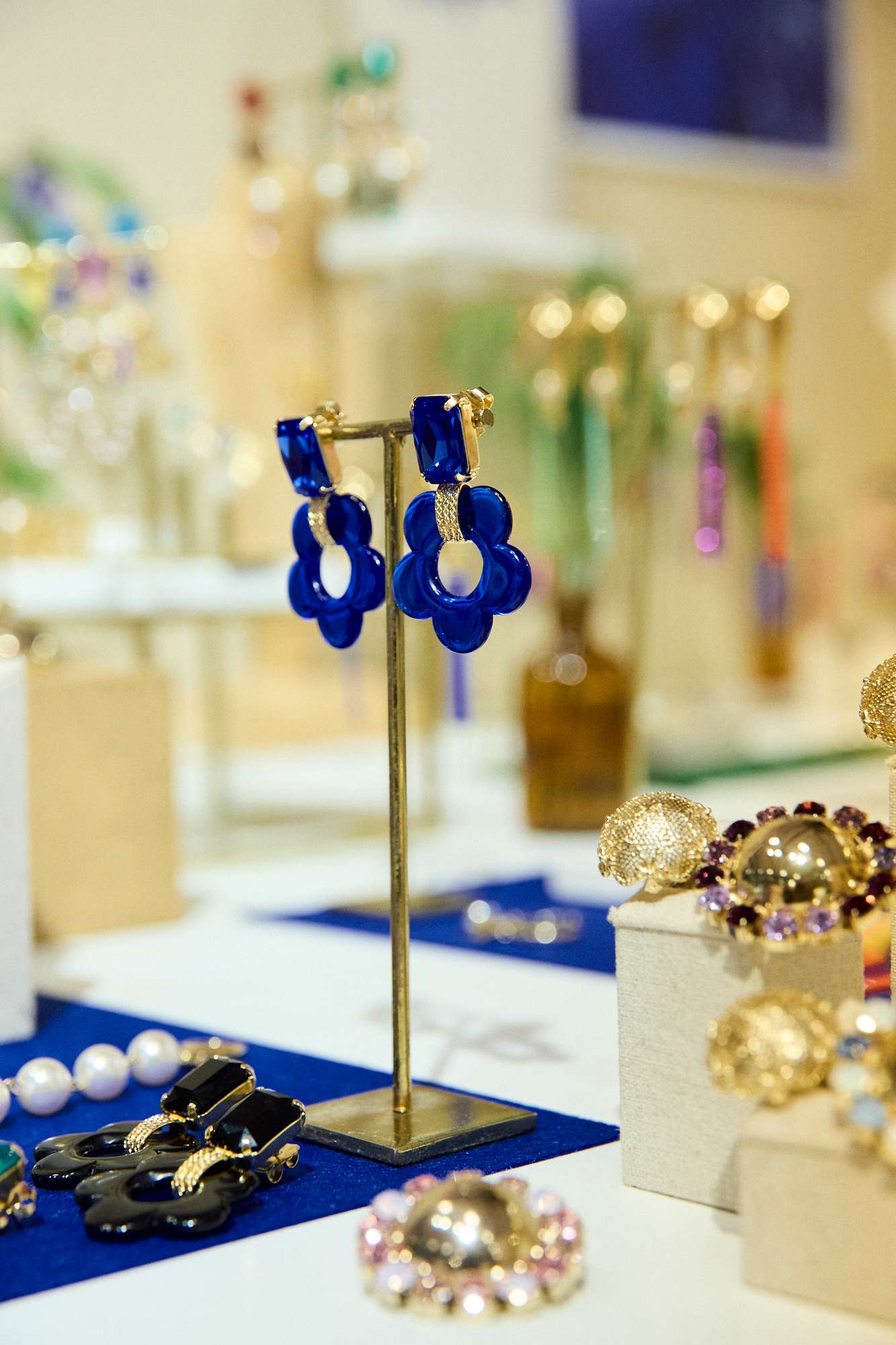
Craftsmanship at the heart of jewellery creation: a self-taught journey and the rise of gatsby soldering workshop Fifteen years ago, Julie Sion made her mark in the world of costume jewellery with a unique and passionate approach. "I stumbled into this profession a bit by chance," she admits. Self-taught, her first steps into creation were through a craft-focused approach, before collaborating with French workshops to ensure ethical and high-quality production for her eponymous brand. These collaborations led her to develop a strong and engaged community, not only around her creative project but also through the human values she upholds in her work.
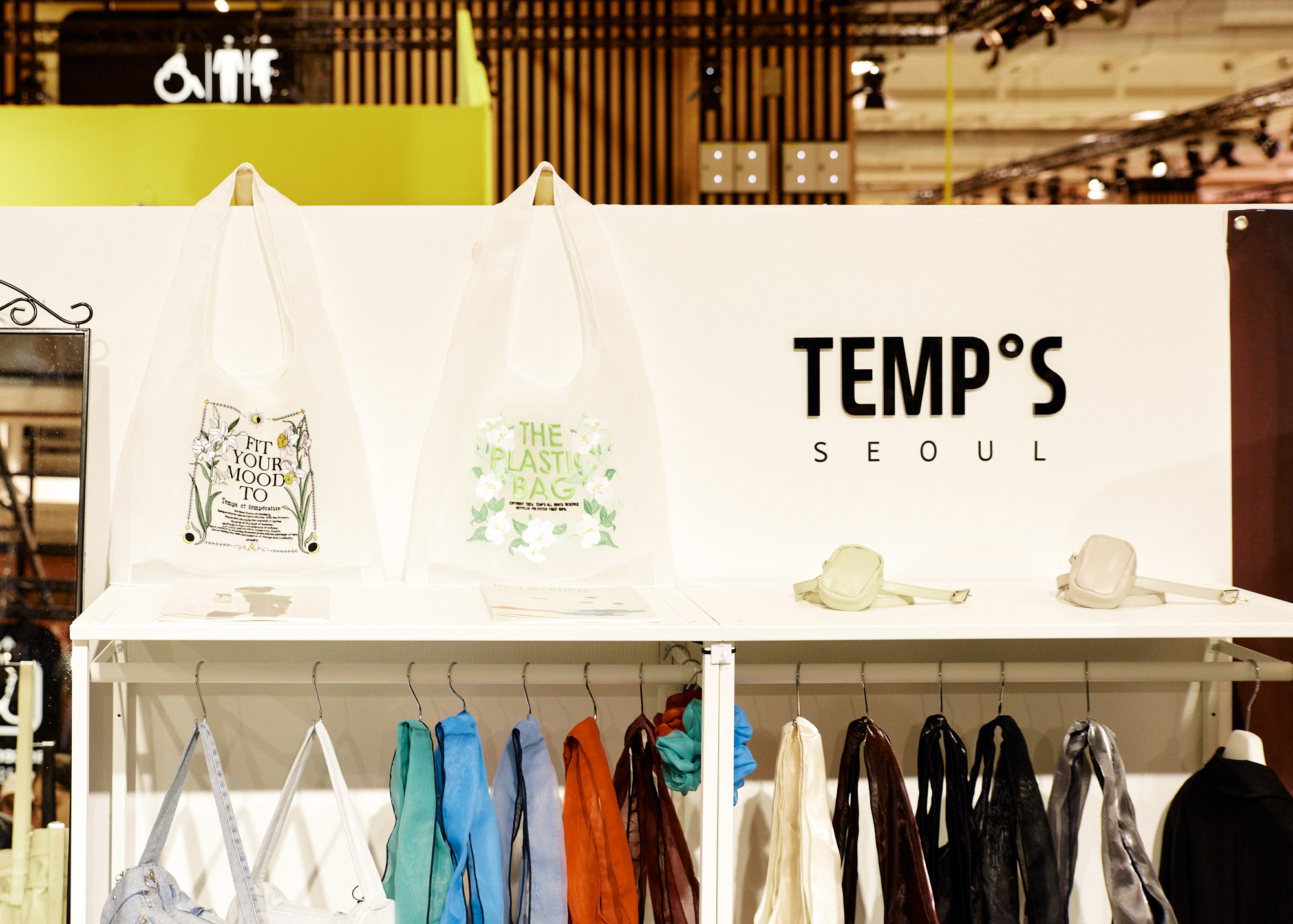
During their debut at Who’s Next, the South Korean brand Temp’s, led by Joanne Jeon Eun-jung, captured attention with its deep commitment to sustainability, combined with a modern and conceptual approach to design.
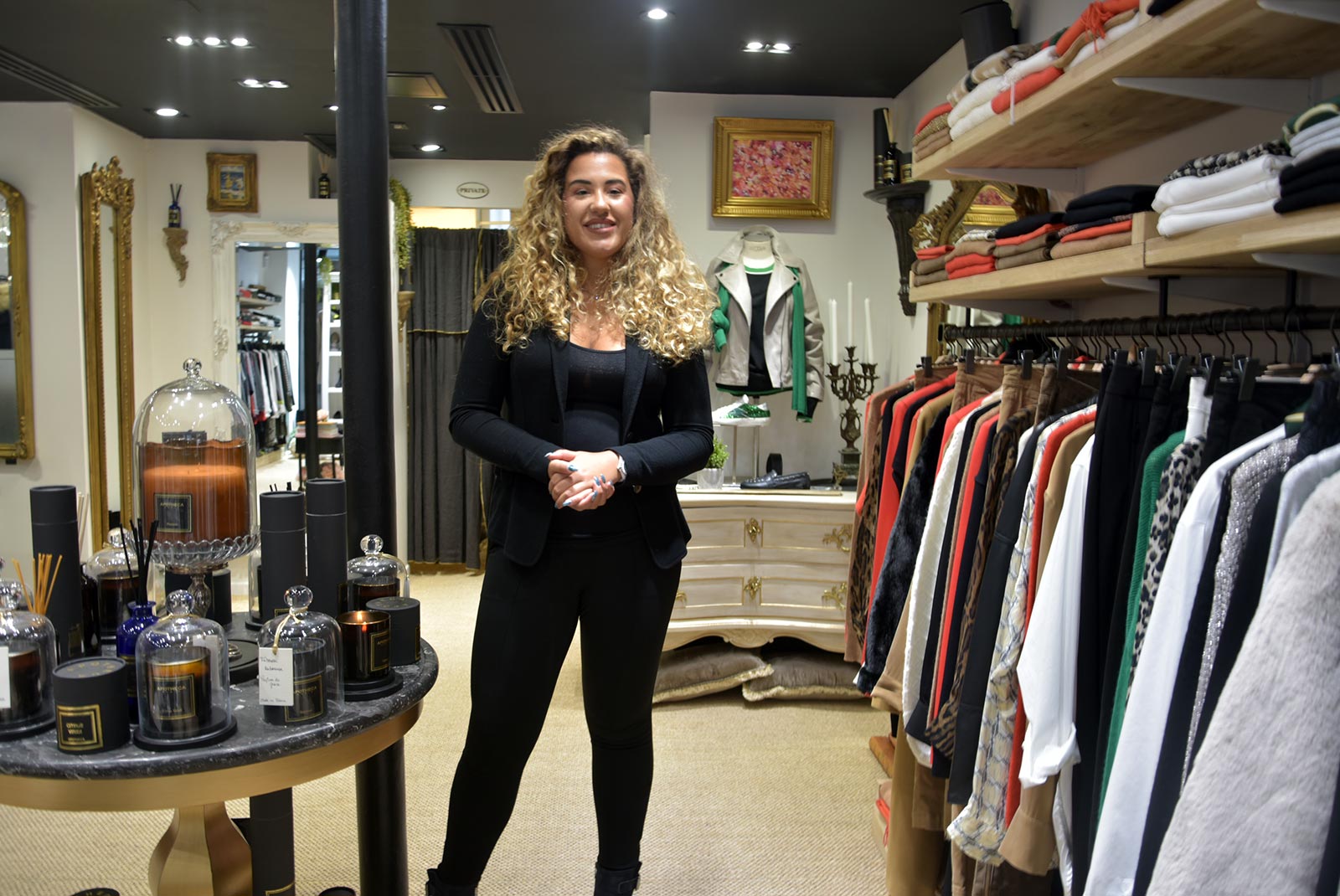
Pamela Kemmat, the influencer and founder of the Pamela Rouen boutique, and her mother Nadège Thevenon, founder of the Paloma Rouen boutique, share their thoughts on “Who’s Next,” an event they regard as the beating heart of the fashion industry.
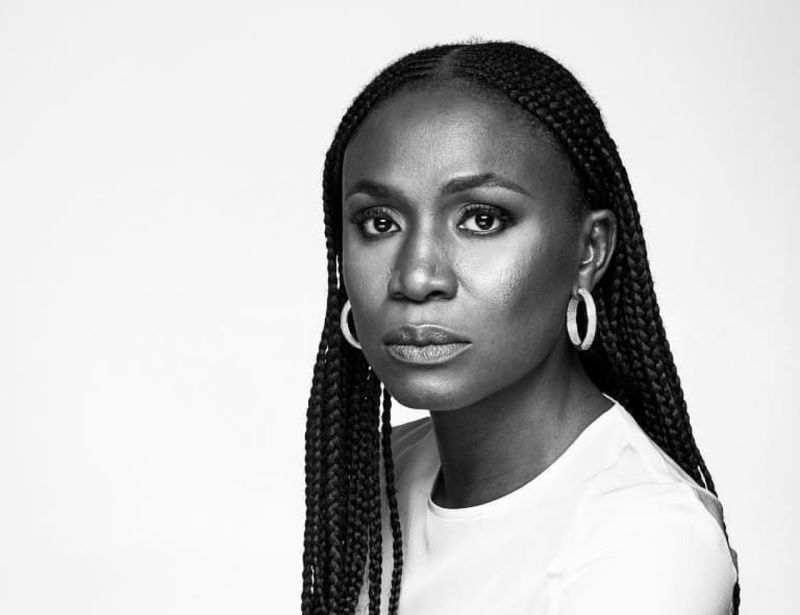
Meet Abasiekeme Ukanireh, the visionary founder and artistic director of Eki Kere, a Nigerian brand that has captivated audiences with its unique creations, showcasing vibrant raffia-based designs.

Who's Next? The great thing about the initial chaos of Who's Next is that it has lasted.
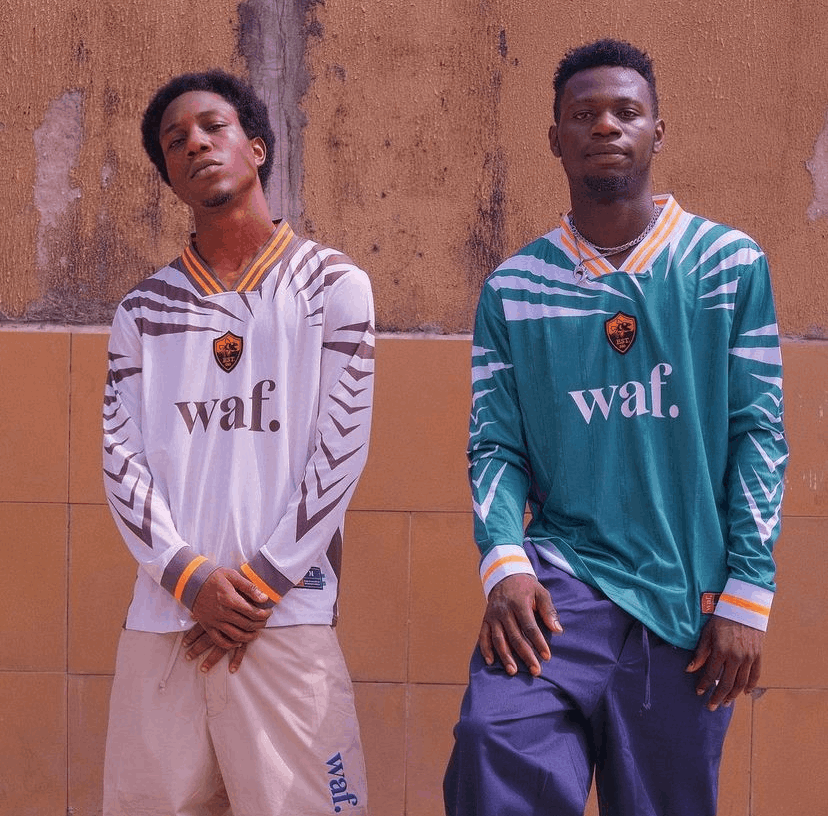
Street Culture resonates with the complexity of a city’s soul. The people, as a community, are those who define and codify its intricacies. Lifestyle, Fashion, Art and Music intertwine through the cosmopolitan blend that characterizes the singularity of a city’s vibe and energy.
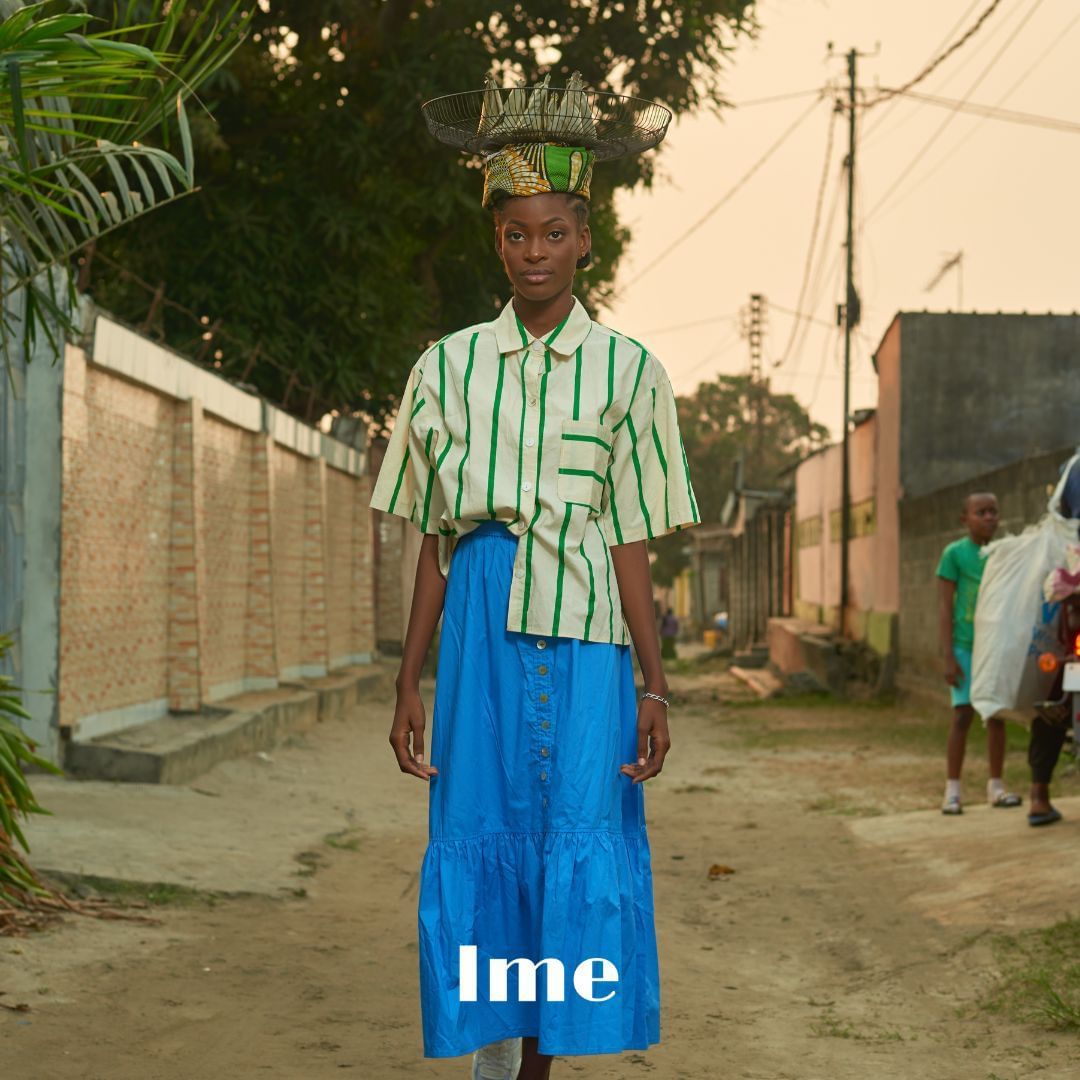
Since its inception in 2019, La Mode Européenne (LME) has stood out for its innovative and transformative approach to the fashion industry. By creating solidarity shops in Congo-Brazzaville and Cape Verde, stocked through donation boxes for clothing and accessories circulated in France and Europe, La Mode Européenne is committed to social and professional reintegration and creating local employment.
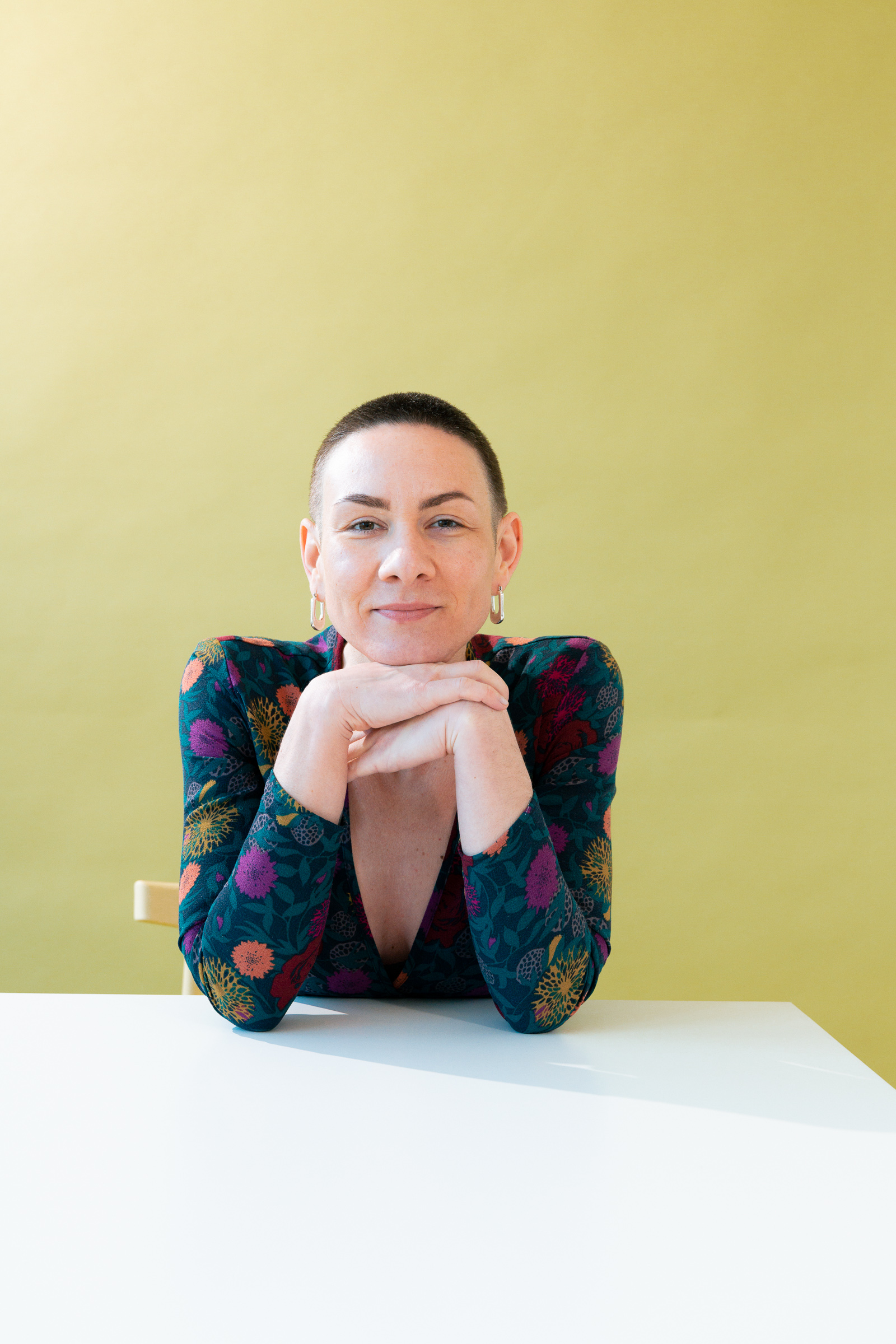
Lavinia Muth, an economist specialising in business ethics for actors of the fashion landscape, has dedicated 15 years to advancing social and ecological standards in the textile and creative industries. Her work as an external auditor, inspector, and investigator, in collaboration with Messe Frankfurt’s trade shows for instance, underscores her commitment to fighting against “corporate sustainability” and “green-washing”.

Julien Martinez, founder of the high-end ‘souliers’ brand Souliers Martinez, embodies the perfect fusion of traditional artisanal craftsmanship and contemporary innovation. Combining his deep Spanish roots with his Parisian cultural influences, his company stands out with a unique approach to leather weaving, supported by committed sustainable values and strong ethics.
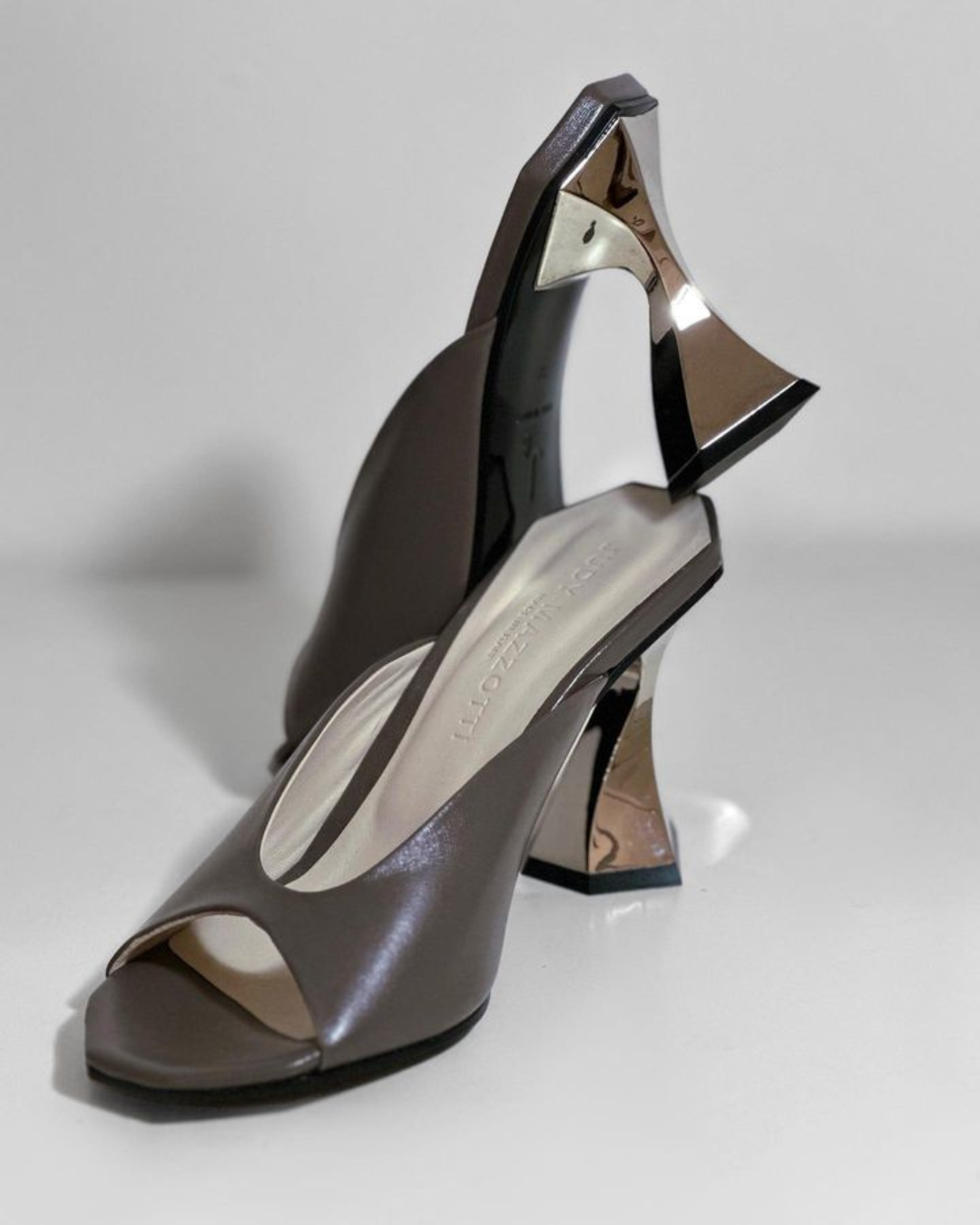
Founded in Rimini from the vision of the eponymous young Italian designer, Judy Mazzotti, Judy created her brand with a focus on the future and research and development centred on innovation and sustainability.
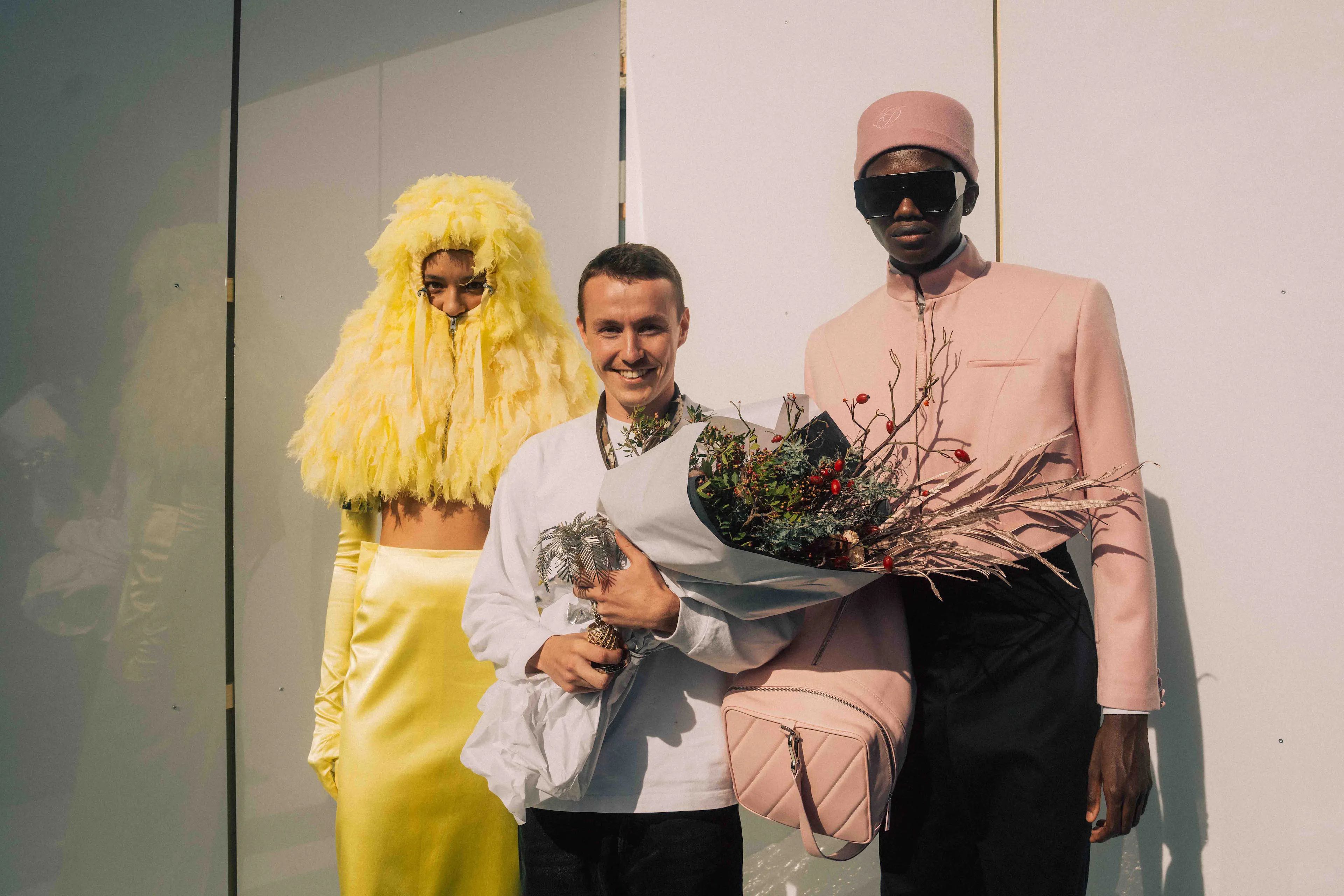
Every year since 1985, Hyères has played host to the Festival de la Mode et de la Photographie.
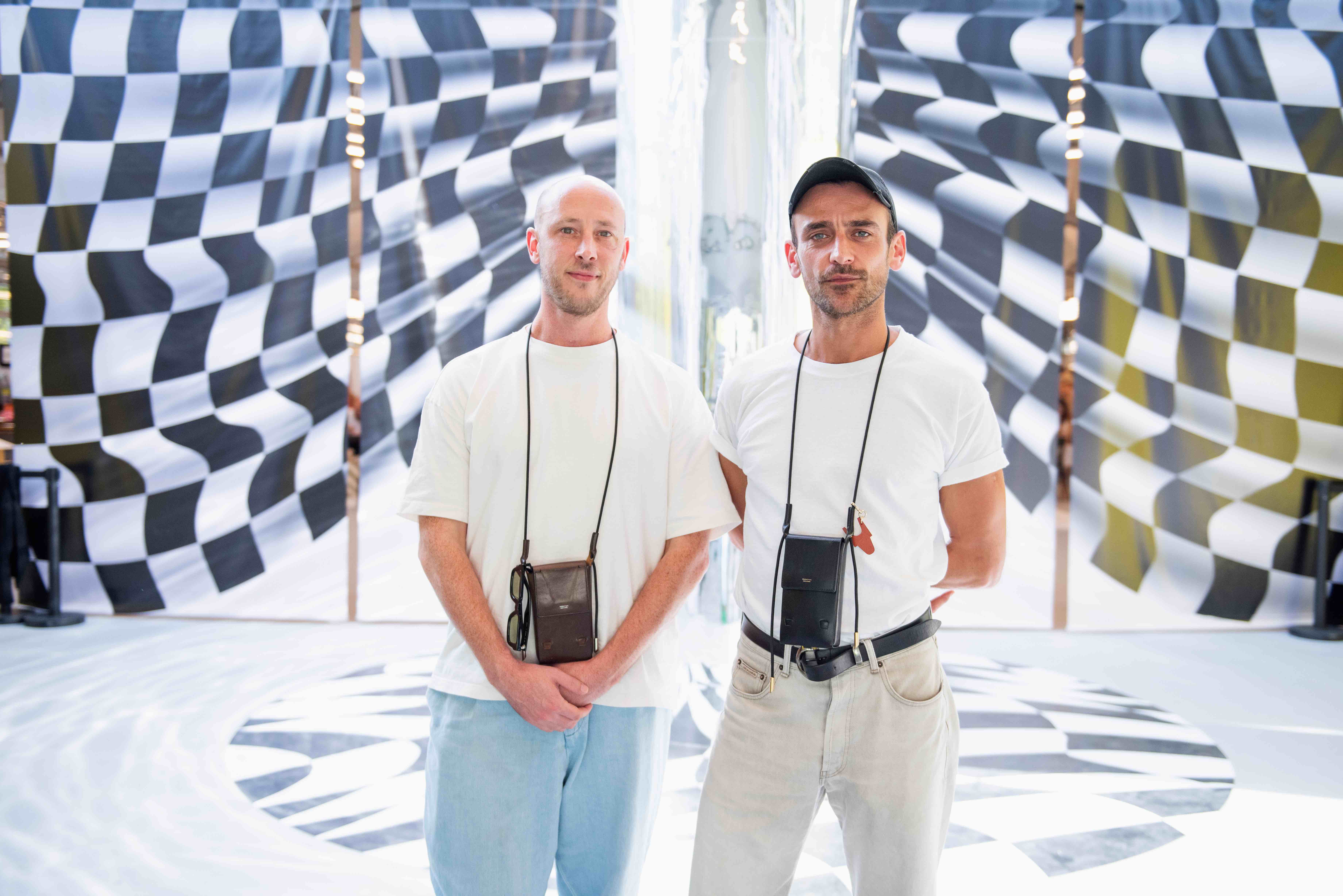
Bastien Beny and Simon Delacour are the creative minds behind the Domestique brand, leather goods accessories made in Paris.

At La Caserne, a sustainable fashion incubator in Paris's 10th arrondissement, Jeanne Friot crafts impactful fashion.